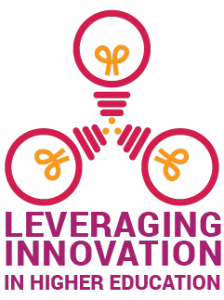Irene Cravey Morning Keynote Speaker
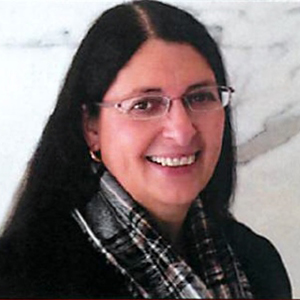 IRENE CRAVY
IRENE CRAVY
Dr. Cravey is an academic leader with a blend of education, management, and administrative experience and proven success developing and executing short- and long-term strategic plans to achieve organizational vision and goals. She has demonstrated success cultivating and fostering strong working partnerships with internal and external partners to facilitate academic program growth, expansion, and viability.
With over 20 years of experience in technical education, Irene has served as an instructor, Curriculum Coordinator, Vice President of Instruction, Associate Vice Chancellor for Instructional Operations, and currently as Associate Vice Chancellor for Instructional Conversion. Dr. Cravey spearheads a team which researches, creates, implements, pilots, and formalizes the use of embedded innovation within TSTC instruction, focusing on such instructional delivery practices such as competency based education, bootcamps, block scheduling, and contextualized developmental education. Under her leadership, TSTC has developed both online and face-to-face competency based education programs of study.
Having a history of ensuring institutional compliance and establishing uniform procedures, Dr. Cravey led the Institutional Effectiveness Committee during TSTC Marshall’s successful pursuit of initial SACSCOC accreditation. Dr. Cravey holds an Ed.D. in Educational Leadership from Stephen F. Austin State University, an M.S. in Higher Education from The University of Texas at Tyler, and a B.S. in Chemistry from Texas Wesleyan University.
Charla Long
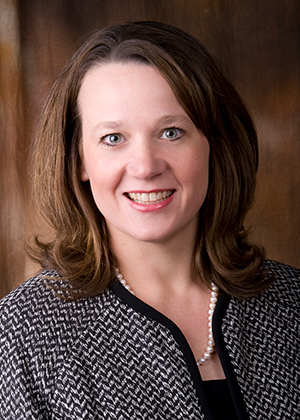 Charla Long, JD
Charla Long, JDExecutive Director,
Competency-Based Education Network (C-BEN)
Long is the Executive Director for the Competency-Based Education Network, a national consortium of higher education institutions and statewide systems seeking to design, develop, and scale new models of student learning. Additionally, she leads C-BEN’s Consulting Services, which is dedicated to helping institutions with competency-based learning. In 2016, Long was recognized by The Chronicle of Higher Education as one of the Top 10 Most Influential People in Higher Education for her work in competency-based education. During 2015, she served as a consultant to Public Agenda on two significant CBE national landscape and field-building projects, funded by both the Bill & Melinda Gates Foundation and Lumina Foundation. In this role, she provided insights, tools, and support to individuals and institutions seeking to advance competency-based education in the United States. These tools included the CBE Ecosystem Framework, the Shared Design Elements and Emerging Practices Model and Research Report, and the CBExchange conference where hundreds of institutions learned how to build high-quality CBE programs. Prior to this, Long was the founding dean of the College of Professional Studies at Lipscomb University and the creator of their nationally acclaimed competency-based education (CBE) model and badging ecosystem. Long has over 20 years of higher education experience at both public and private institutions in the United States.
Rex Pebbles
Rex C. Peebles, Ph.D.
Dr. Peebles has 30 years of experience in higher education, including positions as instructor, professor, department head, dean, and vice president of instruction. He currently serves as the Assistant Commissioner of the Academic Quality and Workforce division of the Texas Higher Education Coordinating Board. Dr. Peebles served six years as a member of the Undergraduate Education Advisory Committee, serving from 2010 to 2012 as the committee’s co-chair. The Core Curriculum, applicable to all public colleges and universities in Texas was revised during that tenure. In 2010, he was the recipient of the Ray Williams Outstanding Leadership Award from the Texas Community College Instructional Administrators (TCCIA). He served as a co-chair of the LEAP Texas Task Force prior to coming to the Coordinating Board. He has a Bachelor of Arts in Political Science from The University of Texas at Dallas, a Master’s in Political Science from The University of Texas at Arlington, and his Ph.D. in Government from The University of Texas at Austin. He has co-authored a Texas state and local government textbook, Texas Politics and Government: Ideas, Institutions, and Policies and authored The Theoria and Praxis of Obligations to Future Generations.
Chuck Abshier
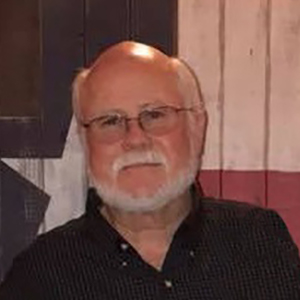 Chuck Abshier
Chuck Abshierchuck.abshier@tstc.edu
Abstract
Two Models For Identifying Competencies In Your Fast-Track Program
Abstract
In this presentation, we share two processes our institution developed to design competencies for our traditional technical programs. We demonstrate how participants can prepare and train their own faculty to develop similar competencies for their institution, and we will share what we learned in the process. We will also share the advantages and disadvantages of each process that we discovered during the development of the competencies.
DIGITAL BADGING AT TSTC
Abstract
The objective of this presentation is to demonstrate TSTC’s Technical Badging process and functionality to aid other institutions if they also choose to award digital badges. Badges are good for retention as they frequently provide student feedback sooner than course grades. Badges are also used for career readiness and placement to award micro credentials and identify career readiness to potential employers. In this session you will take a look into TSTC’s motivation behind awarding digital badges. We will cover our processes for curriculum granularization, identification of relevant badges, creation and design with Marketing and Faculty, awardation and reporting, and future steps. In this session, participants will be encouraged to discuss potential value and challenges of badging.
Presenter Bio
Chuck Abshier is Director of Special Projects responsible for Competency-Based Education development at Texas State Technical College (TSTC). Mr.Abshier began working at TSTC in 1996 teaching Diesel Mechanics, and since that time has been responsible for six TSTC sites. Mr. Abshier led development and instruction of several TSTC CBE awards including Diesel Equipment, Machining/CNC, Air Conditioning, and Welding.
Kimya Anthony
 Kimya Anthony
Kimya Anthony
Adjunct, Professor, Austin Community College
[email protected]
Abstract
DEVELOPMENT OF AN ONLINE ACADEMIC COACHING PILOT
This session will provide a step-by-step implementation plan for developing an Online Academic Coaching Pilot on your campus.
Presenter Bio
Kimya Anthony is an Adjunct Professor of Psychology and Student Development at Austin Community College. She has over 18 years of teaching and counseling experience. With a commitment to student success and persistence, she designed and implemented an Online Academic Coaching Pilot to support at-risk students.
Judy L. Arriaga
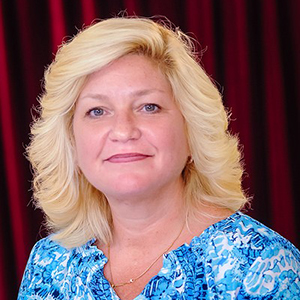 Judy L. Arriaga
Judy L. Arriaga
[email protected]
Abstracts
MAKING A REAL CONNECTION WITH YOUR STUDENTS
Understand the importance of making a personal connection with students and learn tips and strategies for those who provide student support services. REAL is an acronym I created which stands for Realistic Encouraging Available Listen. All of these characteristics are key in supporting students.
Presenter Bio
Judy L. Arriaga, MBA, has been a Business Operations Analyst (BOA) at Austin Community College since February 2017. Prior to her position as BOA, Judy served as the Student Support Specialist for three years for the Competency-Based Education Programs such as Accelerated Programmer Training and Women in IT Programs at Austin Community College. In addition to Judy’s experience in higher education, she has 20+ years of working in the private sector where she held positions as Practice Manager, Operations Manager, and Project Manager, which all required her to design and conduct research studies and analyze the outcomes. Judy completed her BBA in Management and MBA at Texas State University and plans to pursue her Ph.D. in Higher Education Administration at the University of Texas at Austin and is a veteran of the US Armed Forces.
Barbara A. Bailey
 Barbara A. Bailey, PhD
Barbara A. Bailey, PhD
Abstract
USE OF ROLE PLAY TO INTRODUCE CONFLICT MANAGEMENT AND RESOLUTION
The purpose of this presentation is to explain how conflict management and resolution methods are used to help Academic Coaches better manage CBE student expectations. Internal surveys continuously show that the academic coach is largely responsible for student satisfaction and motivation to persist through competency assessments. As a result, Walden administration and key faculty have embarked upon several initiatives to improve the student experience in the CBE modality. One of those initiatives – the subject of this presentation – involves the use of a virtual role play format to deliver relevant principles of conflict resolution and management. Academic coaches played the role of the dissatisfied student and interacted with a senior faculty member well versed in conflict resolution and management techniques to teach coaches how to more effective in dealing with difficult situations in an innovative way.
Presenter Bio
For over 25 years, Barbara A. Bailey, PhD has combined professional experiences in the private, public sector, non-profit, and higher education sectors. She has served as a full-time faculty member and adjunct faculty member (doctoral; masters; bachelors) for various on-ground and online colleges and universities, teaching economics, management and leadership, conflict management, research methodology, statistics, and presentation skills. At Walden University, Dr. Bailey holds a core faculty position in the masters’ of business programs, working with colleagues as the lead faculty member. For over twenty years, Dr. Bailey serves as a registered third party neutral (mediator and arbitrator) in Georgia and for the US Department of Justice, conducting ADA mediations, and served as a member of the Malcolm Baldrige National Quality Award Board of Examiners (2005; 2006). Dr. Bailey’s first book in a series on female conflict will be released in 2018.
John Bosch
 John Bosch
John Bosch
Principle and Partner
TyRex Group, LTD.
Abstract
ENTREPRENEURSHIP, INNOVATION, EXPLORATION & EDUCATION
TyRex is a Family of Technology companies headquartered in Austin, TX. DLI is a World Leader in DLP Light Technology Exploration. The TyRex Family is the Most Complete and Comprehensive 3D Printing Entity in North America from Testing to Development, Production and Blockchain Software Data Security. Tri/REX is Union of 3 Additive Manufacturing Disrupting Programs focused on Industry Change:
- DLP Light Research
- New and Unique Materials
- Flexible, Modular and Customized 3D Printers
TyRex has established a framework for “A Continuum of Entrepreneurial Technology thru Exploration, Innovation and Education, featuring 3D Printing”. Programs have been created in each of the areas. The exploration component is made up of Bright Ideas Boot Camp for Bootstrappers, Classroom Curriculum, and Creativity Technology and Curriculum for Educators. Innovation is accomplished via Research, Technology Business/Student Connections, and R + D Financial Support. The Entrepreneurial Education component is supported by Self-Assessment, Business Fundamentals, Student Internships, and Commercialization Business Support. This presentation will take a deep-dive in these areas and expand on how we meet the objectives for these components. Helping the academic community from K-12 thru Colleges and University based students, as well as faculty and academic institutions, partnerships are our primary focus.
Presenter Bio
John is a “serial entrepreneur” with the ability to develop professional entrepreneurial businesses and partners. He has a BBA in Marketing, as well as a CPA (retired) and a CPIM certification in manufacturing. John co-founded the TyRex Manufacturing Group and has authored numerous training and entrepreneurial business development publications. He is focused on connecting the NexGen leaders with disruptive technologies like additive manufacturing as a foundation for INTELLIGENT MANUFACTURING i.e. robotics, artificial intelligence (AI), data analytics, and blockchain software technology.
Mr. Mike Carranza
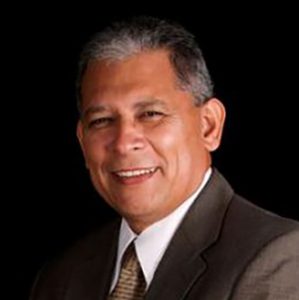 Mr. Mike Carranza
Mr. Mike CarranzaDr. Lauren Cifuentes
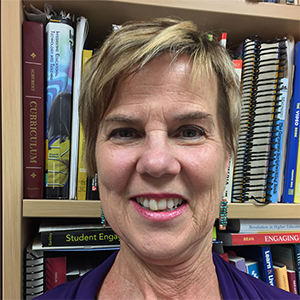 Dr. Lauren Cifuentes
Dr. Lauren CifuentesTexas A&M Commerce
[email protected]
Abstracts
DETERMINING AND REPORTING STUDENTS’ PROGRESS AT COURSE AND PROGRAM LEVELS
The team uses Blackboard’s Goal-Performance Alignment and Analytics for Bb Learn (A4L) tools to demonstrate how the two tools help us align competencies and assessments and make tracking student mastery of competencies and standards easy. The tools automate record keeping as students place-out and/or complete a course, and they track students’ progress through a program. The Goal-Performance alignment tool helps us generate reports of goals coverage information for a single course. Data includes both covered and gap values, information showing how a Blackboard course performs against a selected set of goals, and graphs of how each student in a course performs against a selected set of goals. A4L facilitates analysis of student achievement of competencies through courses across the program. The reports provide overviews of success rates (percentage of students who graduate), retention rates (percentage of students enrolled after a specified term), completion ratios (the number of credits completed divided by the number of credits attempted), comparisons between success of transfer vs. four-year students, and CBE students’ performances compared to traditional students’ performances.
Presenter Bio
Dr. Lauren Cifuentes is Professor and Director of Distance Education and Learning Technologies at TAMU-CC. Her recent interests are focused on designs for learning and administration for distance education.
Dr. Herb Coleman
 Herb Coleman
Herb Coleman
[email protected]
Abstract
CONSIDER GOOGLE CLASSROOM TO SUPPORT YOUR CBE
This will be a session to explore the use of Google Classroom to meet the needs of a CBE course. We will show how to set up a class, make, grade and return assignments, conduct discussions and incorporate Google Docs for collaboration. Participants will have the opportunity to join a Google class setup for this session.
Presenter Bio
Dr. Herb Coleman is an adjunct professor of psychology and student development at Austin Community College. A technologist and college professor, he has almost 30 years of classroom instruction and implementation of technology to support instruction. Recently retired as Director of Classroom Technology Services, Dr. Coleman continues to teach and research instruction and technology as well as train faculty in use of educational technology. He recently presented at national conventions on Clickers, Team-Based Learning, Digital Signage, VR in the Classroom and Google Classroom. He has been an affiliate member of the American Psychological Association, a member of TCEA, ISTE, CCUMC, the Dell North American Consumer Advisory Council, and the Team-Based Learning Collaborative. He is also a Plicker Ambassador.
Patricia Deasy
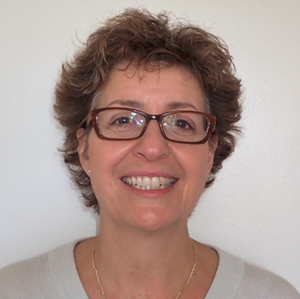 Patricia Deasy
Patricia Deasy
Vice President Versant Holdings, LLC.
Abstract
INTRODUCTION TO VERSANT’S COMPETENCY-BASED SYSTEM
Introduction into Versant’s Competency-Based System Versant’s Competency-Based System provides partner healthcare organizations a comprehensive and systemic approach to: *Measure and evaluate clinical competencies *Identify and remediate competency gaps *Onboard/transition nurses into competent practitioners *Transition experienced nurses into a new specialty *Track outcomes Learn how Versant® has become a leader in providing competency-based training and tracking outcomes in the healthcare industry. Versant will share their comprehensive approach to striving for zero defect in patient safety. From job analysis and development, to performance and outcomes, Versant has laid out a process that builds a framework for training and tracking nurses. Participants in this session will: *Be introduced to Versant’s Competency-based System *Understand the vital role of a Preceptor *Learn about Versant’s comprehensive philosophy of a competency profile and how it is aligned to industry standards. *Learn how Versant Voyager®, an electronic delivery system, provides a platform for competency validation and tracking in real time. *Learn how Versant analyzes outcomes
Presenter Bio
Patty Deasy has more than 9 years of experience in implementing, managing and leading strategies to develop healthcare organizations through her work with Versant®. She currently leads the Products and Service Management team at Versant and is a member of Versant’s Leadership Team. Prior to joining Versant, Ms. Deasy’s career involved over 25 years of clinical experience in nursing practice, nursing education, program development and nursing administration in both community and teaching hospital settings. Ms. Deasy graduated from Salve Regina University in Newport, RI with a bachelor’s degree in nursing. In 2002, she received her MSN as a Family Nurse Practitioner (FNP) from the University of Rhode Island.
Emily Dustin
 Emily Dustin
Emily Dustin
[email protected]
Abstract
GROWING INTO LIFELONG LEARNERS: STUDENT SUCCESS THROUGH A COMPETENCY-BASED LEARNING CONTINUUM
How do we ensure instructors are teaching and assessing what students need to be successful lifelong learners? Nearly every higher education institution claims to prepare its students to be “lifelong learners,” but few have implemented effective practices to institutionalize this vision and measure their success in doing so. Drawing on ongoing research and case studies from schools experimenting with new approaches, this session will explore the programmatic, assessment, curricular, and technological practices that help bridge students’ learning continuum from K-12 to higher education to career, with particular emphasis on how competency-based education (CBE) can provide a model for effective lifelong learning.
Presenter Bio
Emily Dustin, M.Ed., is Director of Education at Motivis Learning. She lends nearly two decades of educational excellence, as a classroom educator and school leader in K-12 and in Adult and Continuing Education. Emily works to create impact at scale in the design and implementation of product and curriculum resources for Motivis Learning with our partners in higher education. Emily harnesses the power of change leadership to transform the teaching and learning experience to enable successful transition to personalized, outcomes-driven education.
Brooks Doherty

Brooks Doherty
AVP of Academic Innovation at Rasmussen College
[email protected]
Abstract
THE ESSENTIAL HUMAN ELEMENT IN CBE
Designing an effective and engaging learning environment which allows learners both self-pacing and consistent and collaborative human connection can be a challenge. It is also essential to ensuring learners can work in diverse groups, perspective-take, and problem solve collaboratively upon graduation. In this session, Rasmussen College and Jobs for the Future share data and practices around creating a human element – authentic synchronous interactions among learners and faculty – in online competency-based education programs.
Presenter Bio
Brooks Doherty is AVP of Academic Innovation at Rasmussen College. He is completing a doctorate in education at St. Mary’s University, earned an MA in literature from University College London, and graduated from the University of Minnesota with degrees in Political Science and English. His central areas of interest are competency-based education, developmental education, workforce preparedness, the relationship between liberal learning and professional learning, and Irish literature. Prior to his current work, Doherty taught remedial and college-level writing courses for students of varying disciplines.
Dr. Christopher Ernst
Dr. Jennifer Porter
[email protected]
Abstract
TEXAS ONRAMPS US HISTORY
Explore Texas OnRamps dual enrollment HIS 315K and 315L courses with us to learn how high school students study significant themes in US history from 1492 through the 1980s. Through these courses, students uncover the range and depth of the American story, focusing on overarching themes such as “American Identities,” “Reform and Renewal,” and “Self and Society.” The dual-enrollment, college-level courses feature two key innovations: use of Team-Based Learning and an integrated learning management system. In this session, you will gain understanding of the student learning process begins with formative online individual and team quizzes based on Internet-available texts in each unit of instruction. Working with their permanently assigned teams, they proceed to analyze sets of primary documents and selected secondary sources using guiding IQs (Inquiry Questions) templates to shape discussions. Each element of the unit scaffolds the students’ approach to building content and thematic knowledge that is assessed using multiple modalities.
Presenter Bio
Dr. Christopher Ernst is the Senior Course Coordinator and Instructor of Record for the Texas OnRamps History courses and a Lecturer with The University of Texas at Austin Department of History.
Dr. Ali Esmaeili
[email protected]
Abstract
A BLUEPRINT FOR SUCCESS IN CREATING AND ADMINISTRATING A CBE PROGRAM
Throughout the last 12 years, South Texas College (STC) has become a leader in the Community College Baccalaureate movement. The presentation will focus on our most recent bachelor’s degree (fourth bachelor degree), the Competency-Based Bachelor’s Degree in Organizational Leadership. We will discuss the challenges and rewards of creating the first Competency-Based Bachelor’s degree in a Texas community college as well as how we applied our experience to the elaboration of a new (CB) Bachelor’s Degree in Computer and Information Technology. We will conclude with a brief discussion of the applicability of our findings to the development of competency-based degree programs in other academic institutions and open the session to questions.
Presenter Bio
Dr. Ali Esmaeili is currently serving as the Dean of Math, Science, Bachelor Programs, and University Relations at South Texas College. Since 2008, prior to fulfilling his position as Dean, Dr. Esmaeili served as Campus Administrator, Professional Development Coordinator, Instructional Support Services Coordinator, Division Director, and Associate Dean for Bachelor Programs. He holds an Ed. D. In Education, Master of Education, Master of Science from Texas A&M University-Kingsville. He is one of the founding faculty at the South Texas College. In addition, he is the founding Administrator for the Bachelor Programs at South Texas College. Currently, he is one of the Board Member at the Community College Baccalaureate Association, Former Board Member of Rio Grande Valley Council of Teachers of Mathematics, Former Board Member of South Texas Educational Technology School District, and former Honorary member of National Institute for Staff and Organizational Development. He has presented at several Nationally known conferences such as SACSCOC, League for Innovations, NISOD, CCBA, and many more.
Cherly Furdge
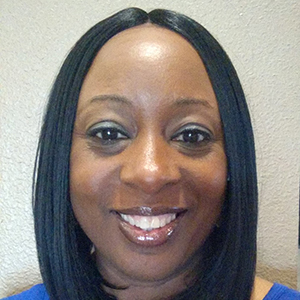 Cherly Furdge
Cherly Furdge
Abstract
INITIATING, IMPLEMENTING, AND INTEGRATING CONTINUOUS COMMUNICATION TO ENSURE STUDENT SUCCESS
(BIRDS OF A FEATHER(BOF))
There are many factors that play into student success: self-efficacy, organization, time management, involvement, well-being, and communication. Constant communication with the students enrolled in an online course is essential in order to ensure that the students’ needs are met and that the success factors are applicable. Instructors and coaches who communicate frequently and effectively with the students are able to personalize student support giving them the necessary direction to complete a competency-based, accelerated program. We will discuss ways to initiate, implement, and integrate continuous communication with the students so that their needs are met, and the factors that play into their success are in place.
Presenter Bio
Dr. Cherly Gary-Furdge is a graduate of Mississippi Valley State University with Bachelors and Masters of Science degrees in Criminal Justice. She completed her Doctorate of Philosophy in Sociology from Texas Woman’s University In December 2013. Cherly has been employed at North Central Texas College for 18 years. Currently, Dr. Furdge is the Division Chair for the Public Administration and Management Division.
Dr. Furdge serves on the Professional Development Committee for the Texas Community College Teachers Association and is a graduate of the Consortium Leadership and Renewal Academy.
Prior to working at NCTC, Dr. Furdge was employed at Mississippi Department of Corrections. During her time there, she held the positions of: Drill Instructor, Correctional Officer I, Correctional officer IV and Assistant to the Associate Warden. She also worked as a supervisor with the Denton County Juvenile Detention Center and as a program coordinator for the SAMPET program with the YWCA in Dallas.
Randall Garver
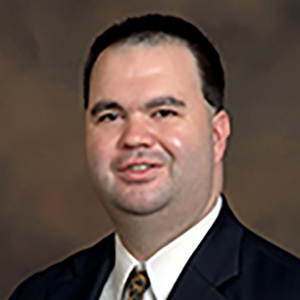 Randall Garver
Randall Garver
[email protected]
Abstracts
PREPARING FACULTY TO DESIGN ONLINE CBE
We present an overview of what competency-based education (CBE) is and how it differs from traditional instruction, using our new courses as models. Next, we explain the reverse nature of CBE course design, highlighting how course designers begin with the industry skills or tasks students must master, and work backwards to identify the appropriate types of final assessments, practice activities, and instructional methods for tasks within course competencies. To facilitate this design process, we share the Instructional Guide Tool we created for instructors, which is based on Bloom’s Taxonomy of learning domains. We also share our Competency Outline Form, which can be filled out and used as a blueprint when designing instruction for competencies. Session participants will practice using these tools to plan the assessment, practice activities, and instruction for a sample group of tasks.
Presenter Bio
Randall Garver is an instructional designer for Texas State Technical College, specializing in converting courses from traditional to online, competency-based versions. Prior to joining TSTC, he worked as an English language instructor at Texas A & M University and at the Bryan Adult Learning Center. He has ten years of experience in university and community programs teaching English to international students and preparing pre-service teachers.
Mr. Garver is also a Ph.D. candidate in Curriculum and Instruction at Texas A & M University. He has a Master of Second Language Teaching degree from Utah State University and a Bachelor’s degree in linguistics from Brigham Young University.
Stuart Greenfield
Stuart Greenfield
Austin Community College
Improving Student Success, while Reducing Student Debt a Common Sense Approach
Abstract
The higher education delivery system has not changed much since Harvard’s opening in 1643. At that time and through today the higher education model involves “a sage on the stage.” A professor/teaching assistant stands in front of a class and delivers a lecture. This delivery system is a labor-intensive process whose costs have increased at a rate exceeding the overall Consumer Price Index (CPI). Over the last thirty years, tuition and fees at public institutions have increased by 6.3 percent compared to an increase in the CPI of 2.6 percent. At prices increase, one expects that the quantity demanded will decrease, and while this hasn’t happened due to other factors changing, we have seen a significant increase in student loans to pay for these increased costs. Improving Student Success offers a way to leverage MOOCs (Massively Open Online Courses) and community colleges to provide students a cost-efficient way to obtain college credit. Along with reduced costs, the community college-MOOCs collaboration would provide greater flexibility to students. Lower costs and greater flexibility should improve success.
Presenters Bio
After obtaining a Ph.D. in economics from the University of Texas in 1977, I was fortunate to obtain a position at the Comptroller of Public Accounts, where I worked in Revenue Estimating. At the agency, I was fortunate to become “tech czar,” which allowed me to suggest new technologies to improve agency operations. We were the first state agency to deploy email, a mainframe-based system, in the 70’s and in 1995, a group (3) of us were able to link the Web to our mainframe, http://tinyurl.com/bm5fvx9. Didn’t do much after that, to prepare for retirement in 2000. My post retirements years have been spent teaching economics at Austin Community College and online w/ UMUC. I also continue analyzing the state’s fiscal outlook, http://www.texasfiscal.info, public sector employment conditions, and other public policy issues.
Shonda Gibson
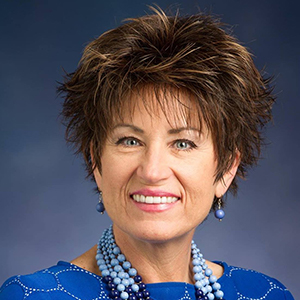 Shonda Gibson
Shonda Gibson
[email protected]
BEYOND THE CBE BASICS — LESSONS LEARNED AND NEXT STEPS
Abstract
For thousands of students, competency-based education is not a pipe dream; it’s a reality. What have institutions that have already implemented competency-based learning (and business) models learned from their experiences? What insights have they uncovered that has impacted their decision-making? What pain points have pushed them to build or seek alternative solutions? How are colleges keeping tabs on curricular quality? Student success? Institutional effectiveness?
In this session panelists representing successful programs from (1) a four-year school, (2) an online-only institution, and (3) a community college, will share their experiences, evidence of success, and challenges associated with growing a new learning (and business) model.
In most cases, a competency-based model of teaching and learning requires significant changes to conventional higher education learning and business models. Those institutions who have made the leap can offer critical insight into the processes involved especially for those institutions interested in getting started or who are further down the pike.
ACCREDITATION AND REPORTING
Abstract
This panel discussion will highlight reporting and accreditation considerations when implementing innovative approaches to course and program offerings at four and two-year institutions of higher education such as non-standard terms or competency-based education. It is imperative to consider not only the implications, but the connections that may occur between regional accreditation, federal, state, and local levels. Specific to Texas, there are critical connections between innovative approaches to course and program offerings and the Completion Goal of the Texas Higher Education Strategic Plan 60×30. Reporting considerations critical to these types of innovative approaches include: state reporting for funding, tracking of census dates, drops for non-payment and payment plans, and tracking of veteran and military service members benefits. Accreditation considerations include identifying appropriate steps and notification actions to regional accreditation agencies based on the nature of the innovative approaches.
THE TEXAS AFFORDABLE BACCALAUREATE: INNOVATION IN HIGHER EDUCATION ACROSS TEXAS
The TAB expansion Grant Program Statewide goals are to increase the number of TAB degree programs offered from two to ten, and serve 21,000 students in the first five years. Currently, six TAB programs have been awarded, and have been or are currently being developed. This proposed panel is comprised of leaders in CBE and varied innovation in higher education leading TAB initiatives on their campus. Hear from the Texas Higher Education Coordinating Board and
current TAB grant recipients from Texas A&M University-Commerce, South Texas College, Austin Community College and Texas A&M University-Corpus Christi. Each TAB program representative will provide a quick introduction about their current program, new programs development, implementation, challenges, etc. This will be followed with an in depth discussion of common challenges, barriers, themes, data collection initiatives, identified by the Texas Higher Education Coordinating board as they visited each site location. Finally, the panel will open it up to audience for questions and discussion on major themes.
CBE: A BUSINESS MODEL FOR CHANGING TIMES
Presenter Bio
Dr. Shonda Gibson has served in a variety of roles in higher education, all concentrated on innovation and strategic progressive actions toward continuous improvement. She brings over 25 years of corporate and industry experience to higher education. In addition to serving as the Associate Provost for Institutional Effectiveness at Texas A&M University-Commerce, she also serves as a SACSCOC Accreditation Liaison and evaluator. She served on the Texas Affordable Baccalaureate Program Advisory Committee in creation and implementation of the state’s first competency-based degree offered by an accredited public institution, which earned the Texas Higher Education Coordinating Board’s prestigious Texas Star Award. She has also led the Institute for Competency-Based Education, a collaboratory funded by the Texas legislature for innovation focused on experimentation and research to advance the understanding of, development, and growth of CBE programs. Dr. Gibson is an active member of a wide variety of organizations and efforts designed to fully prepare students to thrive in our highly interconnected and diverse world.
Tesha Gooch
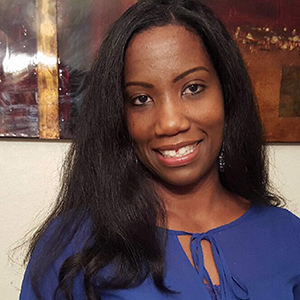 Tesha Gooch
Tesha Gooch
[email protected]
Abstract
THE IMPORTANCE & NECESSITY OF ACADEMIC COACHING WITHIN ACADEMIA
(BIRDS OF A FEATHER (BOF))
Academic coaching involves establishing a relationship with students; it provides a meaningful connection with students. The central focus is to build a rapport with students to help them achieve their goals. Coaches help students help themselves. Coaching brings about a sense of empowerment for students as it helps them take ownership of their education. It encourages students to think critically and keeps them engaged in learning. Coaches monitor student progress consistently to ensure student success. Essentially, academic coaching is a comprehensive support service provided to students that is vital to help them achieve their goals.
Presenter Bio
Tesha Gooch is the Student Success Coach for the MyWay Competency-Based Education (CBE) program at the University of Mary Hardin-Baylor in Belton, TX. In this role, she has the opportunity to coach students and monitor their progress consistently throughout the duration of the program to promote student success. Additionally, she is adjunct faculty at Austin Community College and has taught Transition to College Success of the Student Development department. Ms. Gooch has a M.S.Ed. in Leadership for Higher Education; a B.S. in Management of Human Resources and an A.A. in Business Administration. She has nearly eighteen years of higher education experience in student support services. Prior to the aforementioned roles, Ms. Gooch served as a Guidance Counselor and Program Coordinator, and her background encompasses holistic advising/counseling, student support, and retention. She has a heart to serve students with excellence and help facilitate their educational/life journey. In her free time, Ms. Gooch enjoys spending time with family, traveling and visiting historical sites and museums.
Randy Haley
 Randy Haley
Randy Haley
Abstracts
Two Models For Identifying Competencies In Your Fast-Track Program
(Long Session)
In this presentation, we share two processes our institution developed to design competencies for our traditional technical programs. We demonstrate how participants can prepare and train their own faculty to develop similar competencies for their institution, and we will share what we learned in the process. We will also share the advantages and disadvantages of each process that we discovered during the development of the competencies.
PREPARING FACULTY TO DESIGN ONLINE CBE
We present an overview of what competency-based education (CBE) is and how it differs from traditional instruction, using our new courses as models. Next, we explain the reverse nature of CBE course design, highlighting how course designers begin with the industry skills or tasks students must master, and work backwards to identify the appropriate types of final assessments, practice activities, and instructional methods for tasks within course competencies. To facilitate this design process, we share the Instructional Guide Tool we created for instructors, which is based on Bloom’s Taxonomy of learning domains. We also share our Competency Outline Form, which can be filled out and used as a blueprint when designing instruction for competencies. Session participants will practice using these tools to plan the assessment, practice activities, and instruction for a sample group of tasks.
Presenter Bio
Randy Haley has been with TSTC just over 5 years. At that time, he was the division director for IT studies at the Marshall campus. Two years later, he moved to Associate Vice-President of Student Learning (CAO) and the statewide lead over all the Computer Science and Computer Aided Drafting programs. He now works in the newly formed Instructional Conversion department. Randy currently holds many IT certifications such in the Cyber Security field. He was a corporate digital investigator prior to working at TSTC. He speaks at many cyber security conferences held by the chamber of commerce. His hobbies include playing with his grandchildren, and playing bluegrass music.
Alexander R. Hapka
TITLE
 Alexander R. Hapka
Alexander R. Hapka
[email protected]
Abstract
The purpose of this presentation is to explain how conflict management and resolution methods are used to help Academic Coaches better manage CBE student expectations. Internal surveys continuously show that the academic coach is largely responsible for student satisfaction and motivation to persist through competency assessments. As a result, Walden administration and key faculty have embarked upon several initiatives to improve the student experience in the CBE modality. One of those initiatives – the subject of this presentation – involves the use of a virtual role play format to deliver relevant principles of conflict resolution and management. Academic coaches played the role of the dissatisfied student and interacted with a senior faculty member well versed in conflict resolution and management techniques to teach coaches how to more effective in dealing with difficult situations in an innovative way.
Presenter Bio
Dr. Hapka is a core faculty member and MBA program coordinator in Walden’s College of Management and Technology. In his current role in Walden’s Tempo Competency-Based Education program, he manages faculty and works with academic coaches to ensure an excellent student experience in this new and emerging modality. In addition, he works with subject matter experts to develop new MBA specialization competencies to augment the core competencies within the Tempo MBA degree program. He has over 30 years of research and technology management experience spanning the financial management, energy, and aerospace industries. Dr. Hapka has served on several boards of nonprofit organizations devoted to energy education and management. Dr. Hapka earned a Ph.D. from New York University in finance and statistical applications, an M.S. in applied statistics from Stony Brook University, and a B.S. in mathematics from Manhattan College. He has published several journal articles and serves as a book reviewer for the New York Journal of Books and enjoys electric bicycle riding and various local community volunteer activities.
Kerri Harmon
 Kerri Harmon
Kerri Harmon[email protected]
Abstract
THE TIP PROGRAM AT UT AUSTIN
This presentation will share information regarding the creation, current operation, and assessment of the Collaborative Study (CSS) Program at the University of Texas at Austin. CSS serves as a strong support to competency-based education using innovative techniques, peer leadership, and Socratic questioning.
Collaborative Study is one of the most recent support services offered to the Texas Interdisciplinary Plan (TIP) Scholars as they enter the College of Natural Sciences (CNS) their freshman year. It is a cooperative effort of trained peer leaders, staff, and faculty. The purpose of CSS is to demonstrate and practice learning in higher education. It is designed to help TIP Scholars succeed in challenging lower-division STEM courses (Chemistry, Biology, Calculus), and equip them with the skills and growth-mindset that will benefit them throughout their college careers and beyond.
Presenter Bio
Dr. Kerri Harmon is a Program Coordinator for the TIP Scholars at the University of Texas at Austin. She hires, trains and manages nearly 50 Course Assistants who facilitate Collaborative Study Sessions (CSS) in the College of Natural Sciences. She teaches Introduction to Applied Problem Solving, Scholastic Seminar, and Introduction to Leading Collaborative Study.
Kerri has a background in academic advising and adult education. She holds a Master’s degree in School Counseling from Wilmington University and earned a Doctorate in Educational Leadership from Delaware State University in 2012. Prior to her 20-year career in higher education, she served as an Air Traffic Controller in the USAF.
Dewayne Higgs
 Dewayne Higgs
Dewayne HiggsONE APPROACH TO IMPLEMENTING MICROCREDENTIALS
Nicholas Hinojosa
 Title
Title
Nicholas Hinojosa
[email protected]
Abstract
South Texas College and Austin Community College developed a fully online, CBE program for the Bachelors of Applied Technology in Computer and Information Technologies (BAT-CIT). The Advanced Networking course in this demo is part of the CBE program, and it prepares individuals for a career as a Network Engineer in the Information Technology (IT) support industry. This course is composed of four competencies: Networking Fundamentals, LAN Switching, Routing Protocols, and Network Infrastructure Services. In addition, we will also demonstrate the Advanced Computer Programming course, which teaches students how to develop applications with graphical user interfaces (GUI) and database connectivity. Through the demonstration of these two courses, we will explore course design, competencies, course policies, assessments, learning outcomes, online faculty-student interaction, and rubrics.
Presenter Bio
Nicholas Hinojosa currently serves as an instructor and assistant program chair for the South Texas College Computer Science Department. He has an Associate’s degree in Mathematics, a Bachelor’s degree in Computer and Information Technologies, and a Master’s degree in Information Technology. He has taught various subjects in computing, such as programming, networking, web development, and database management.
Alexandra Janney
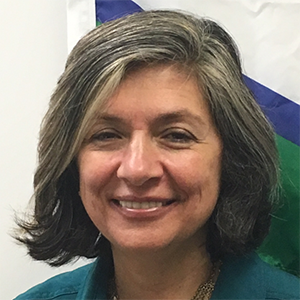 Alexandra Janney
Alexandra JanneyTexas A&M Corpus Christi
[email protected]
Abstract
DETERMINING AND REPORTING STUDENTS’ PROGRESS AT COURSE AND PROGRAM LEVELS
The team uses Blackboard’s Goal-Performance Alignment and Analytics for Bb Learn (A4L) tools to demonstrate how the two tools help us align competencies and assessments and make tracking student mastery of competencies and standards easy. The tools automate record keeping as students place-out and/or complete a course, and they track students’ progress through a program. The Goal-Performance alignment tool helps us generate reports of goals coverage information for a single course. Data includes both covered and gap values, information showing how a Blackboard course performs against a selected set of goals, and graphs of how each student in a course performs against a selected set of goals. A4L facilitates analysis of student achievement of competencies through courses across the program. The reports provide overviews of success rates (percentage of students who graduate), retention rates (percentage of students enrolled after a specified term), completion ratios (the number of credits completed divided by the number of credits attempted), comparisons between success of transfer vs. four-year students, and CBE students’ performances compared to traditional students’ performances.
Presenter Bio
Alexandra Janney is the Assistant Director of Distance Education and Learning Technologies at TAMU-CC. Her special interests are in emerging technologies and innovative approaches to the delivery of higher education.
Dr. Christopher Johnson
 Christopher Johnson
Christopher Johnson
American Council on Education
[email protected]
EVALUATING EMPLOYEES’ NON-CREDIT CREDENTIALS INTO CERTIFICATES AND DEGREES
The session will engage participants in a panel discussion regarding the process for evaluating and awarding credit for students’ prior learning experiences and industry credentials. Eastfield College and the American Council on Education (ACE) will share strategies used to develop replicable accelerated programs that align with non-credit industry-recognized certifications. The panel will provide attendees with information regarding credit for prior learning initiatives, best practices institutions with successful industry crosswalk models, faculty experiences as an evaluator in training and during implementation, and institutional experiences in developing practices and policies for making recommendations, transcripting credit, etc. Supported by funding through the Texas Higher Education Coordinating Board, Eastfield College, in partnership with Houston Community College and the American Council on Education, are using online technology, face-to-face professional development, and advisory teams to train faculty in the evaluation of and industry certifications to develop replicable accelerated pathways to a stackable credit-bearing credential.
Presenter Bio
Christopher Johnson is a practitioner with 22 years in higher education serving both on the administrative and academic sides. Dr. Johnson has diverse experience with classroom instruction, faculty supervision, and curriculum development. He has developed over 40 courses on the undergraduate and graduate levels and taught courses ranging from the Social Sciences, Interdisciplinary Studies, and areas of Leadership and Management. He has taught courses in various formats (traditional, on-line, and blended/hybrid format).
Dr. Johnson’s other professional activities include serving as a department chair and academic dean. He has been a rater for the College Board’s AP exam, as well as an accreditation reviewer, and has been actively engaged with ACE as a faculty reviewer and regional liaison. He is a nine-year veteran with the U.S. Army Reserve. Dr. Johnson holds a Ph.D. in Education with a concentration in Higher Education Leadership from Capella University and an Ed.M. with a focus in Instructional Leadership from Temple University. He has a bachelor’s degree in both History and Political Science if from Western Carolina University.
Martin Johnson
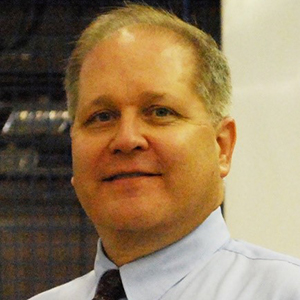 Martin Johnson
Martin Johnson
Executive Vice President
TyRex Group, LTD
Abstract
ENTREPRENEURSHIP, INNOVATION, EXPLORATION & EDUCATION
TyRex is a Family of Technology companies headquartered in Austin, TX. DLI is a World Leader in DLP Light Technology Exploration. The TyRex Family is the Most Complete and Comprehensive 3D Printing Entity in North America from Testing to Development, Production and Blockchain Software Data Security. Tri/REX is Union of 3 Additive Manufacturing Disrupting Programs focused on Industry Change:
- DLP Light Research
- New and Unique Materials
- Flexible, Modular and Customized 3D Printers
TyRex has established a framework for “A Continuum of Entrepreneurial Technology thru Exploration, Innovation and Education, featuring 3D Printing”. Programs have been created in each of the areas. The exploration component is made up of Bright Ideas Boot Camp for Bootstrappers, Classroom Curriculum, and Creativity Technology and Curriculum for Educators. Innovation is accomplished via Research, Technology Business/Student Connections, and R + D Financial Support. The Entrepreneurial Education component is supported by Self-Assessment, Business Fundamentals, Student Internships, and Commercialization Business Support. This presentation will take a deep-dive in these areas and expand on how we meet the objectives for these components. Helping the academic community from K-12 thru Colleges and University based students, as well as faculty and academic institutions, partnerships are our primary focus.
Presenter Bio
Martin has held numerous leadership roles in Fortune 100 and Private Companies across many industries. He joined the TyRex Family in 2013, and has held numerous leadership positions in the areas of additive manufacturing, production, logistics, and technical services. He has been a major force in the formation of two new associated companies TekRex (2016), the development arm for TyRex, and tri/REX (2018), the custom development additive manufacturing initiative focused on developing unique DLP light solutions, materials, and machines for production Additive Manufacturing. Tasked with analyzing and bringing cutting edge technology and 3D printing expertise to the rest of the TyRex Family, he is able to bridge business and technical requirements with an eye toward innovation. He holds numerous records of invention and marketing awards and is experienced in bringing new technology to market. Martin runs point for additive manufacturing across the TyRex Group Family of Companies.
Barbara Joseph
Introduction to Versant’s Competency-Based System
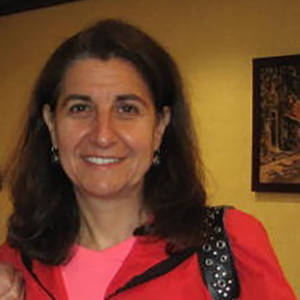
Barbara Joseph
Consulting Project Manager Versant Holdings, LLC.
[email protected]
Abstract
Introduction into Versant’s Competency-Based System Versant’s Competency-Based System provides partner healthcare organizations a comprehensive and systemic approach to: *Measure and evaluate clinical competencies *Identify and remediate competency gaps *Onboard/transition nurses into competent practitioners *Transition experienced nurses into a new specialty *Track outcomes Learn how Versant® has become a leader in providing competency-based training and tracking outcomes in the healthcare industry. Versant will share their comprehensive approach to striving for zero defect in patient safety. From job analysis and development, to performance and outcomes, Versant has laid out a process that builds a framework for training and tracking nurses. Participants in this session will: *Be introduced to Versant’s Competency-based System *Understand the vital role of a Preceptor *Learn about Versant’s comprehensive philosophy of a competency profile and how it is aligned to industry standards. *Learn how Versant Voyager®, an electronic delivery system, provides a platform for competency validation and tracking in real time. *Learn how Versant analyzes outcomes
Presenter Bio
Barbara Joseph has been involved in managing the development and implementation of various educational delivery models. Ms. Joseph recently transitioned from working in higher education to healthcare. As a Project Manager for Versant, Ms. Joseph will manage the development of their competency-based system for Long-Term Care. For the past eight years, Barbara has held various positions responsible for piloting, designing and implementing graduate-level online courses and competency-based programs at institutions such as Boston University, Wheelock College, Jackson College, and Merrimack College. Prior to her work in higher education, she spent over 20 years of her career in high tech, specifically software localization. She has held various positions from software engineer, director of technical services, and vice president of operations. Ms. Joseph is a graduate of Boston College with degrees in Computer Science, French and a minor in Math. She also received an Entrepreneurial Management Certificate from Babson College in Wellesley, Massachusetts.
Amardeep Kahlon
 Amardeep Kahlon
Amardeep KahlonDirector, Fast Track To Success
[email protected]
Abstract
THE TEXAS AFFORDABLE BACCALAUREATE: INNOVATION IN HIGHER EDUCATION ACROSS TEXAS
The TAB expansion Grant Program Statewide goals are to increase the number of TAB degree programs offered from two to ten, and serve 21,000 students in the first five years. Currently, six TAB programs have been awarded, and have been or are currently being developed. This proposed panel is comprised of leaders in CBE and varied innovation in higher education leading TAB initiatives on their campus. Hear from the Texas Higher Education Coordinating Board and
current TAB grant recipients from Texas A&M University-Commerce, South Texas College, Austin Community College and Texas A&M University-Corpus Christi. Each TAB program representative will provide a quick introduction to their current program, new programs development, implementation, challenges, etc. This will be followed by an in-depth discussion of common challenges, barriers, themes, data collection initiatives, identified by the Texas Higher Education Coordinating board as they visited each site location. Finally, the panel will open it up to the audience for questions and discussion on major themes.
Presenter Bio
Dr. Amardeep Kahlon is passionate about innovation and research in higher education. She is a highly experienced and innovative educator with experience in the complete education cycle from design to evaluation. She is keenly interested in innovative pedagogies for increasing student retention and engagement.
Dr. Kahlon is currently the director of Fast Track to Success, a competency-based education (CBE) project. As a part of this project, she holds workshops around Texas for disseminating CBE best practices. She is the co-director of a Texas Affordable Baccalaureate grant, wherein she works with South Texas College to create accelerated, competency-based pathways to a Bachelor’s degree in Computer Information Technology. In October 2017, Dr. Kahlon was profiled by The Chronicle of Higher Education as one of the top ten classroom innovators in the country.
Dr. Kahlon is also part of an NSF funded project to build a sustainable model for broadening the participation in computer science in community colleges. While she was on sabbatical in 2013-14, she served as a founding dean of academic affairs at a university in India.
Satwinder Kahlon
 Satwinder Kahlon
Satwinder Kahlon
[email protected]
Abstract
ENTREPRENEURSHIP, INNOVATION, EXPLORATION & EDUCATION
TyRex is a Family of Technology companies headquartered in Austin, TX. DLI is a World Leader in DLP Light Technology Exploration. The TyRex Family is the Most Complete and Comprehensive 3D Printing Entity in North America from Testing to Development, Production and Blockchain Software Data Security. Tri/REX is Union of 3 Additive Manufacturing Disrupting Programs focused on Industry Change:
- DLP Light Research
- New and Unique Materials
- Flexible, Modular and Customized 3D Printers
TyRex has established a framework for “A Continuum of Entrepreneurial Technology thru Exploration, Innovation and Education, featuring 3D Printing”. Programs have been created in each of the areas. The exploration component is made up of Bright Ideas Boot Camp for Bootstrappers, Classroom Curriculum, and Creativity Technology and Curriculum for Educators. Innovation is accomplished via Research, Technology Business/Student Connections, and R + D Financial Support. The Entrepreneurial Education component is supported by Self-Assessment, Business Fundamentals, Student Internships, and Commercialization Business Support. This presentation will take a deep-dive in these areas and expand on how we meet the objectives for these components. Helping the academic community from K-12 thru Colleges and University based students, as well as faculty and academic institutions, partnerships are our primary focus.
Presenter Bio
An industry expert with over 30 years of experience in software development and information technology, Satwinder Kahlon manages all in-house applications as well as external customer projects as President of Saber Data. Spending the first 16 years of his technical career at IBM, Kahlon worked on a wide range of technologies, including multiple operating systems, Video Server and WebSphere. He then moved on to positions with Surgient Networks (Principal Engineer & Founding Technical Team Lead), Genband (Director of Software Development), Incisent Technologies and Allen Technologies. While Kahlon helped Genband establish teams in India, supervise the transfer of their product team to China and lead a global team of architects for the effective integration of acquired software products in the telecom domain, he also assisted Incisent start their Austin office and build their engineering team. From there, he went on to aid Allen Technologies in providing informational, educational and entertainment solutions for the health care industry. Included as part of his work with Allen Technologies was the launch of tablet-based solution for hospital patients.
A U.S. Army veteran, who served four years working in the areas of biotechnology and computer application development, Kahlon holds a BS in Computer Science from the University of Maryland as well as MS degrees in Genetics (PAU Ludhiana, India) and Computer Science (SUNY Binghamton).
John Bosch
Principle and Partner
TyRex Group, LTD.
John is a “serial entrepreneur” with the ability to develop professional entrepreneurial businesses and partners. He has a BBA in Marketing, as well as a CPA (retired) and a CPIM certification in manufacturing. John co-founded the TyRex Manufacturing Group and has authored numerous training and entrepreneurial business development publications. He is focused on connecting the NexGen leaders with disruptive technologies like additive manufacturing as a foundation for INTELLIGENT MANUFACTURING i.e. robotics, artificial intelligence (AI), data analytics, and blockchain software technology.
Martin Johnson
Executive Vice President
TyRex Group, LTD
Martin has held numerous leadership roles in Fortune 100 and Private Companies across many industries. He joined the TyRex Family in 2013, and has held numerous leadership positions in the areas of additive manufacturing, production, logistics, and technical services. He has been a major force in the formation of two new associated companies TekRex (2016), the development arm for TyRex, and tri/REX (2018), the custom development additive manufacturing initiative focused on developing unique DLP light solutions, materials, and machines for production Additive Manufacturing. Tasked with analyzing and bringing cutting edge technology and 3D printing expertise to the rest of the TyRex Family, he is able to bridge business and technical requirements with an eye toward innovation. He holds numerous records of invention and marketing awards and is experienced in bringing new technology to market. Martin runs point for additive manufacturing across the TyRex Group Family of Companies.
Melissa Kuhlmann
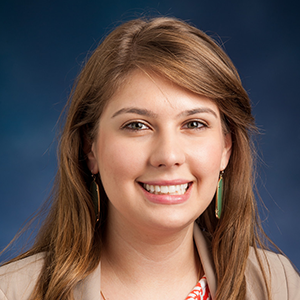 Melissa Kuhlmann
Melissa Kuhlmann
Abstract
This panel discussion will highlight reporting and accreditation considerations when implementing innovative approaches to course and program offerings at four and two-year institutions of higher education such as non-standard terms or competency-based education. It is imperative to consider not only the implications, but the connections that may occur between regional accreditation, federal, state, and local levels. Specific to Texas, there are critical connections between innovative approaches to course and program offerings and the Completion Goal of the Texas Higher Education Strategic Plan 60×30. Reporting considerations critical to these types of innovative approaches include: state reporting for funding, tracking of census dates, drops for non-payment and payment plans, and tracking of veteran and military service members benefits. Accreditation considerations include identifying appropriate steps and notification actions to regional accreditation agencies based on the nature of the innovative approaches.
Presenter Bio
Melissa Kuhlmann has served at Texas A&M University-Commerce for the past three years and currently holds the position of Institutional Effectiveness and SACSCOC Coordinator. In 2017 she received her Masters of Science in Higher Education Administration from A&M Commerce and plans to pursue future educational opportunities and trainings in respect to institutional effectiveness and accreditation.
David Leasure
 David Leasure
David LeasureMANAGING STUDENT SUCCESS IN AN EVER-EVOLVING DIGITAL WORLD–STRATEGIES AND SOLUTIONS FOR COMPETENCY-BASED LEARNING PROGRAMS
Stephanie Long
 Stephanie Long
Stephanie Long
[email protected]
Abstract
DESIGNING & IMPLEMENTING A CBE PILOT PROGRAM: CHALLENGES, BENEFITS, AND LESSONS LEARNED
The GIS Department at ACC recently launched an online competency-based pilot program. Students will complete 20 semester hours and 512 contact hours of modularized Geographic Information Systems curriculum while demonstrating mastery of individual competencies. GIS and Geomatics Department Chair Sean Moran will discuss the challenges in launching a new CBE pilot program, as well as the benefits to our entire GIS program. Associate Professor of GIS Stephanie Long will discuss how the CBE format of learning was applied to curricular design for the courses and how the online format of learning is achieved through teaching techniques, student engagement and digital delivery of content for the courses. She will also provide metrics on the current state of the pilot program.
Presenter Bio
Stephanie Long is currently an Associate Professor within the GIS Department of Austin Community College where she teaches the Level I Certificate courses of: Introduction to GIS; Intermediate GIS; Map Design and Use; Data Acquisition and Analysis; Capstone. Stephanie Long holds a Master of Science in Geography from Texas State University in San Marcos and she has 13 years of experience as a GIS professional.
Dave Lungren
 Dave Lungren
Dave Lungren
[email protected]
Abstract
The presentation will detail a process for creating valid and reliable assessments of student mastery in CBE courses, from the development of effective competencies through the definition, design, and development of the actual assessments.
Presenter Bio
David Lungren leads the design and development of online learning at Collegis Education. In more than 12 years with the organization, he has led teams that have built thousands of online courses for more than 20 college partners. Most recently, Lungren has focused his efforts on designing new models of learning delivery and assessment strategies that support competency-based education programs. Prior to joining Collegis, Lungren spent eight years running online development teams in the publishing and corporate training industries.
Andy Lynch
 Andy Lynch
Andy Lynch
Southern New Hampshire University
Abstract
GROWING INTO LIFELONG LEARNERS: STUDENT SUCCESS THROUGH A COMPETENCY-BASED LEARNING CONTINUUM
How do we ensure instructors are teaching and assessing what students need to be successful lifelong learners? Nearly every higher education institution claims to prepare its students to be “lifelong learners,” but few have implemented effective practices to institutionalize this vision and measure their success in doing so. Drawing on ongoing research and case studies from schools experimenting with new approaches, this session will explore the programmatic, assessment, curricular, and technological practices that help bridge students’ learning continuum from K-12 to higher education to career, with particular emphasis on how competency-based education (CBE) can provide a model for effective lifelong learning.
Presenter Bio
Andy Lynch is the Associate Dean, School of Business Rethinking Higher Education for Business Students New Program Development and Implementation Three-Year Program Management Faculty Professional Development Support
Tamika Malone
 Tamika Malone
Tamika Malone
Financial Aid and Scholarships
[email protected]
PANEL DISCUSSION — FINANCIAL AID
Abstract
Presenter Bio
Originally from Tulsa, OK, Tamika started in Telecom at MCI WorldCom as a Planning Engineer for 6 years and then moved to Level 3 Communications and worked there for 2 years with the same title. Her career in Financial Aid began in 2011 in Tulsa, OK and then to TX in May 2014 to work at Texas A&M University-Commerce as a Financial Aid Advisor. After a year and a half, she was promoted to the Financial Aid Processing Coordinator for Special Programs, specifically dedicated to Financial Aid for the Organizational Leadership program. She received a Bachelor of Business Administration degree in Management Information Systems from the University of Oklahoma in 1999 and a Masters of Business Administration in Electronic Business from the University of Phoenix in 2001. Currently, she is working on another degree in Masters of Science in Technology Management at Texas A&M University-Commerce and will graduate December 2018.
Matthew Mayeshiba
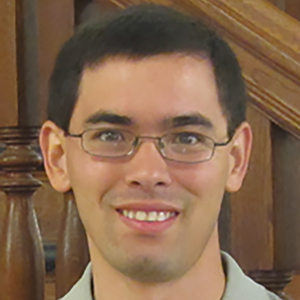 Matthew Mayeshiba
Matthew Mayeshiba
[email protected]
USING VALUE RUBRICS TO ASSESS CRITICAL THINKING IN THE UW FLEXIBLE OPTION
Abstract
To better understand learning outcomes in a CBE program, faculty members from the University of Wisconsin-Milwaukee evaluated 39 students’ demonstrations of critical thinking in two assessments administered in parallel versions of one course: one offered through the non-term, direct assessment UW Flexible Option (15 students), and the other through a traditional online program (24 students). These faculty members scored each assessment using the critical thinking rubric from the Association of American Colleges & Universities (AAC&U) Valid Assessment of Learning in Undergraduate Education (VALUE) project, and found that students from the CBE version of the course received significantly higher (p=.0013) overall scores than students in the traditional online version. This study begins to address questions raised about students’ ability to demonstrate meta-cognitive skills in a direct-assessment CBE learning environment. This early research does not support that concern. Further research with an increased sample size is recommended to evaluate if these results can be supported.
Presenter Bio
Matthew Mayeshiba serves as a business intelligence analyst at University of Wisconsin-Extension and previously served as a researcher with the National Center for Research on Distance Education and Technological Advancements (DETA Center), which is hosted at the University of Wisconsin-Milwaukee. Specializing in competency-based education, since 2014 he has worked extensively with personnel from throughout the University of Wisconsin System to document and measure the implementation of the non-term, direct assessment competency-based University of Wisconsin Flexible Option.
Lisa McIntyre-Hite, Ph.D.
 Lisa McIntyre-Hite, Ph.D.
Lisa McIntyre-Hite, Ph.D.Executive Director of Product Innovation
Walden University
[email protected]
LOOKING FORWARD TO CBE & INNOVATION IN HIGHER EDUCATION
BEYOND THE CBE BASICS — LESSONS LEARNED AND NEXT STEPS
Abstract
For thousands of students, competency-based education is not a pipe dream; it’s a reality. What have institutions that have already implemented competency-based learning (and business) models learned from their experiences? What insights have they uncovered that has impacted their decision-making? What pain points have pushed them to build or seek alternative solutions? How are colleges keeping tabs on curricular quality? Student success? Institutional effectiveness?
In this session panelists representing successful programs from (1) a four-year school, (2) an online-only institution, and (3) a community college, will share their experiences, evidence of success, and challenges associated with growing a new learning (and business) model.
In most cases, a competency-based model of teaching and learning requires significant changes to conventional higher education learning and business models. Those institutions who have made the leap can offer critical insight into the processes involved especially for those institutions interested in getting started or who are further down the pike.
Presenter Bio
Lisa McIntyre-Hite, PhD, is Executive Director of Product Innovation for Tempo Learning at Walden University. With over 18 years of experience in education, Lisa is passionate about expanding access to high-quality learning experiences She began her career as a high-school teacher and principal before moving in to higher education. She has been with Walden’s direct-assessment offering since its inception and has seen it through from pilot-to-scale. Her current research interests include CBE and innovative business and learning models in higher education.
Dr. Emma L. Miller
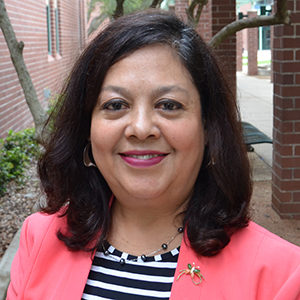 Dr. Emma L. Miller
Dr. Emma L. Miller[email protected]
Abstract
A Blueprint for Success in Creating and Administrating a Competency-Based Education Program
Throughout the last 12 years, South Texas College (STC) has become a leader in the Community College Baccalaureate movement. The presentation will focus on our most recent bachelor’s degree (fourth bachelor degree), the Competency-Based Bachelor’s Degree in Organizational Leadership. We will discuss the challenges and rewards of creating the first Competency-Based Bachelor’s degree in a Texas community college as well as how we applied our experience to the elaboration of a new (CB) Bachelor’s Degree in Computer and Information Technology. We will conclude with a brief discussion of the applicability of our findings to the development of competency-based degree programs in other academic institutions and open the session to questions.
The Texas Affordable Baccalaureate: Innovation In Higher Education Across Texas
The TAB expansion Grant Program Statewide goals are to increase the number of TAB degree programs offered from two to ten, and serve 21,000 students in the first five years. Currently, six TAB programs have been awarded, and have been or are currently being developed. This proposed panel is comprised of leaders in CBE and varied innovation in higher education leading TAB initiatives on their campus. Hear from the Texas Higher Education Coordinating Board and
current TAB grant recipients from Texas A&M University-Commerce, South Texas College, Austin Community College and Texas A&M University-Corpus Christi. Each TAB program representative will provide a quick introduction about their current program, new programs development, implementation, challenges, etc. This will be followed with an in depth discussion of common challenges, barriers, themes, data collection initiatives, identified by the Texas Higher Education Coordinating board as they visited each site location. Finally, the panel will open it up to audience for questions and discussion on major themes.
Presenter Bio
Dr. Emma L. Miller has been in higher education administration in the state of Texas for over 20 years. She has a PhD in Applied Management and Decision Science with a concentration in Leadership and Organizational Change from Walden University. Currently, Dr. Miller is Assisant Dean for Bachelor programs as well as the Program Chair for the Competency-Based Education Bachelor of Applied Science in Organizational Leadership program at South Texas College as well as the advisor for the National Society of Leadership and Success South Texas College Chapter. In addition, Dr. Miller has also been an Academic Dean with Brightwood College and a Director of Academic Affairs for the University of Phoenix McAllen, TX campus. As a researcher, she has focused on mentoring examining how it relates to student retention and attrition and its impact on the institution. She has written in books, international journals and presented in local and international conferences. Dr. Miller has recently co-authored a chapter “Survey Research Methods” for the book: Education Research: An African approach published by South Africa Oxford University Press as well as co-authored “Education Diplomacy in Mentoring Diverse Populations” in the International Journal of Early Childhood Education. In addition, Dr. Miller serves as Senior Advisor for the non-profit organization Blue Marble Space Institute of Science.
Mike Moore
Senior Advisory Consultant, Team Lead
Learning Strategies & Consulting
D2L, Ltd.
[email protected]
BEYOND THE CBE BASICS — LESSONS LEARNED AND NEXT STEPS
Abstract
For thousands of students, competency-based education is not a pipe dream; it’s a reality. What have institutions that have already implemented competency-based learning (and business) models learned from their experiences? What insights have they uncovered that has impacted their decision-making? What pain points have pushed them to build or seek alternative solutions? How are colleges keeping tabs on curricular quality? Student success? Institutional effectiveness?
In this session panelists representing successful programs from (1) a four-year school, (2) an online-only institution, and (3) a community college, will share their experiences, evidence of success, and challenges associated with growing a new learning (and business) model.
In most cases, a competency-based model of teaching and learning requires significant changes to conventional higher education learning and business models. Those institutions who have made the leap can offer critical insight into the processes involved especially for those institutions interested in getting started or who are further down the pike.
Presenter Bio
Mike Moore, Senior Advisory Consultant D2L. Michael holds a master’s degree in Computer Information Systems and a bachelor’s degree in Accounting. He has worked extensively in the software industry with over 20+ years of experience managing and manipulating data and customizing software. Prior to D2L, he was a D2L higher education client for three years and managed the Analytics implementation at Daytona State College during that time. Mike is particularly interested in the effective integration of educational technology tools into the online teaching environment and the classroom.
Mr. Moran
 Mr. Moran
Mr. Moran
[email protected]
Abstract
DESIGNING & IMPLEMENTING A CBE PILOT PROGRAM: CHALLENGES, BENEFITS, AND LESSONS LEARNED
The GIS Department at ACC recently launched an online competency-based pilot program. Students will complete 20 semester hours and 512 contact hours of modularized Geographic Information Systems curriculum while demonstrating mastery of individual competencies. GIS and Geomatics Department Chair Sean Moran will discuss the challenges in launching a new CBE pilot program, as well as the benefits to our entire GIS program. Associate Professor of GIS Stephanie Long will discuss how the CBE format of learning was applied to curricular design for the courses and how the online format of learning is achieved through teaching techniques, student engagement and digital delivery of content for the courses. She will also provide metrics on the current state of the pilot program.
Presenter Bio
Mr. Moran is the ACC GIS Department Chair and Professor. He has over 20 years of professional planning, Geographic Information Systems (GIS), and Global Positioning Systems (GPS) experience. He has extensive experience utilizing information technology to facilitate planning, engineering, and environmental projects. Prior to coming to Austin Community College (ACC) in 2009, Mr. Moran taught applied GIS to graduate-level planning students in the School of Architecture at the University of Texas. He has a BS in Forest Science from Texas A&M University and an MS in Community and Regional Planning from the University of Texas.
Sarah Morrow
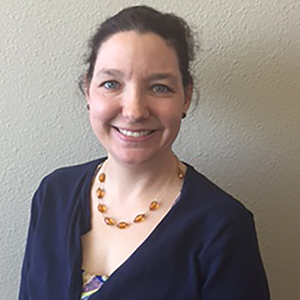 Sarah Morrow
Sarah Morrow
[email protected]
Abstract
INITIATING, IMPLEMENTING, AND INTEGRATING CONTINUOUS COMMUNICATION TO ENSURE STUDENT SUCCESS
(BIRDS OF A FEATHER(BOF))
There are many factors that play into student success: self-efficacy, organization, time management, involvement, well-being, and communication. Constant communication with the students enrolled in an online course is essential in order to ensure that the students’ needs are met and that the success factors are applicable. Instructors and coaches who communicate frequently and effectively with the students are able to personalize student support giving them the necessary direction to complete a competency-based, accelerated program. We will discuss ways to initiate, implement, and integrate continuous communication with the students so that their needs are met, and the factors that play into their success are in place.
Presenter Bio
Sarah Morrow is a graduate of Texas Woman’s University and holds a Bachelor’s degree in Interdisciplinary Studies with a minor in Elementary Education. She graduated in 2016 from Texas A&M-Commerce with a Master’s of Education in Counseling with an Emphasis in Student Affairs and is now working on a Doctorate in Higher Education Leadership. Currently, Sarah is the Grant Coordinator for the Fast Start IV Grant at North Central Texas College. Prior to coming to the post-secondary sector of education, Sarah taught K-12 for 12 years.
Annie Myers
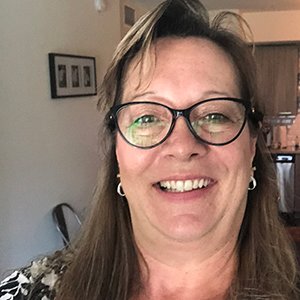 Annie Myers
Annie MyersBEYOND THE CBE BASICS — LESSONS LEARNED AND NEXT STEPS
Abstract
For thousands of students, competency-based education is not a pipe dream; it’s a reality. What have institutions that have already implemented competency-based learning (and business) models learned from their experiences? What insights have they uncovered that has impacted their decision-making? What pain points have pushed them to build or seek alternative solutions? How are colleges keeping tabs on curricular quality? Student success? Institutional effectiveness?
In this session panelists representing successful programs from (1) a four-year school, (2) an online-only institution, and (3) a community college, will share their experiences, evidence of success, and challenges associated with growing a new learning (and business) model.
In most cases, a competency-based model of teaching and learning requires significant changes to conventional higher education learning and business models. Those institutions who have made the leap can offer critical insight into the processes involved especially for those institutions interested in getting started or who are further down the pike.
Presenter Bio
Annie Myers is Associate Dean of IT & Engineering at Broward College for the last three years. Served as Project Director for the Round 2 TAACCCT Grant – Building fully online Computer Systems Specialist Competency Based Associates Degree.
Jennifer Nailos
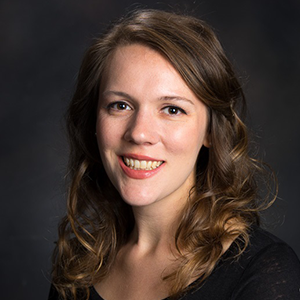 Jennifer Nailos
Jennifer Nailos
[email protected]
THE TEXAS AFFORDABLE BACCALAUREATE: INNOVATION IN HIGHER EDUCATION ACROSS TEXAS
LOOKING FORWARD TO CBE & INNOVATION IN HIGHER EDUCATION
Abstract
The TAB expansion Grant Program Statewide goals are to increase the number of TAB degree programs offered from two to ten, and serve 21,000 students in the first five years. Currently, six TAB programs have been awarded, and have been or are currently being developed. This proposed panel is comprised of leaders in CBE and varied innovation in higher education leading TAB initiatives on their campus. Hear from the Texas Higher Education Coordinating Board and current TAB grant recipients from Texas A&M University-Commerce, South Texas College, Austin Community College and Texas A&M University-Corpus Christi. Each TAB program representative will provide a quick introduction to their current program, new programs development, implementation, challenges, etc. This will be followed by an in-depth discussion of common challenges, barriers, themes, data collection initiatives, identified by the Texas Higher Education Coordinating board as they visited each site location. Finally, the panel will open it up to the audience for questions and discussion on major themes.
Presenter Bio
Jennifer Nailos, Ed.D., is a Program Director in the Division of Academic Quality and Workforce at the Texas Higher Education Coordinating Board (THECB). At the THECB, her roles include working with colleges and universities, staff, subject matter experts, and other stakeholders, to assure quality academic programming through program review, assessment, evaluation, grant management, and policy administration. She works with several grant programs, including the Texas Affordable Baccalaureate Grant Program and represents the agency on the Competency-Based Education Network. Jennifer’s professional experience includes student affairs, assessment, leadership training, and research at several universities across the US. She holds an Ed.D. in Higher Education from Indiana University, M.A. in Higher Education & Student Affairs from The Ohio State University, and B.A.s in History and English from the University of Massachusetts-Amherst.
Todd Nobles
 Todd Nobles
Todd Nobles
Abstract
WHAT DOES PROGRESSION LOOK LIKE? VISUALIZING STUDENT EXPERIENCES USING REAL CBE PROGRAM DATA
Our measures of students’ experiences have lost much of their relevance amidst shifting program models and changing student populations. Although the field has common metrics in IPEDS like fall to fall retention, they were designed around traditional institutions serving traditional students. Postsecondary competency-based programs and other innovative models demand new ways of understanding students’ enrollment and progression so that program leaders can identify common barriers for students and inform continuous improvement. In our presentation, we will demonstrate exciting new measures of student success that begin to meet the needs of program leaders in search of more detailed and illustrative student progression metrics. Participants will be engaged in answering the following questions:
- What measures of student progression currently exist?
- Why are current measures a poor fit?
- What questions should we be asking about student progression?
- What are some examples of new and better progression metrics (modeled using real data from seven institutions with established CBE programs)?
- How might participants use these new metrics today?
Presenter Bio
Todd Nobles is a Research Assistant at AIR. His current areas of focus include investigating student outcomes in competency-based education programs & evaluating postsecondary student success initiatives. His primary responsibilities include quantitative analysis of student-level data, data management, & qualitative analysis of interviews. Todd has experience working with postsecondary institutions to modify policies and practices around student finances and financial aid.
Carlos Ojeda
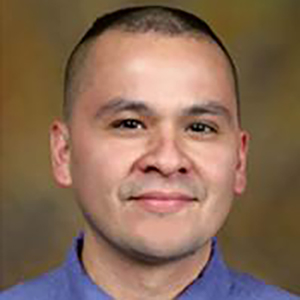 Carlos Ojeda
Carlos Ojeda
[email protected]
Abstracts
EVALUATING EMPLOYEES’ NON-CREDIT CREDENTIALS INTO CERTIFICATES AND DEGREES
The session will engage participants in a panel discussion regarding the process for evaluating and awarding credit for students’ prior learning experiences and industry credentials. Eastfield College and the American Council on Education (ACE) will share strategies used to develop replicable accelerated programs that align with non-credit industry-recognized certifications. The panel will provide attendees with information regarding credit for prior learning initiatives, best practices institutions with successful industry crosswalk models, faculty experiences as an evaluator in training and during implementation, and institutional experiences in developing practices and policies for making recommendations, transcripting credit, etc. Supported by funding through the Texas Higher Education Coordinating Board, Eastfield College, in partnership with Houston Community College and the American Council on Education, are using online technology, face-to-face professional development, and advisory teams to train faculty in the evaluation of and industry certifications to develop replicable accelerated pathways to a stackable credit-bearing credential.
Presenter Bio
Carlos Ojeda has served as program coordinator of Eastfield’s Auto Body Technology program since 2001 and is responsible for the program’s development, curriculum development, personnel selection and evaluation, and student recruiting.
An auto body collision industry technician for 15 years, he is ASE master certified (through the National Institute for Automotive Service Excellence) and is an I-CAR certified welding administrator. He also holds PPG paint certification and refrigerant recovery certification through the International Mobile Air Conditioning Association (IMACA).
He was selected as Eastfield College’s Minnie Stevens Piper Professor in 2010, receiving the Excellence in Teaching Award from the Miles Production Co. Only one faculty member from each of the seven colleges of DCCCD receives this prestigious award each year.
He earned an associate degree in Auto Body Technology from Eastfield College.
Dr. Jennifer Porter
Dr. Jennifer Porter
[email protected]
Abstract
TEXAS ONRAMPS US HISTORY
Explore Texas OnRamps dual enrollment HIS 315K and 315L courses with us to learn how high school students study significant themes in US history from 1492 through the 1980s. Through these courses, students uncover the range and depth of the American story, focusing on overarching themes such as “American Identities,” “Reform and Renewal,” and “Self and Society.” The dual-enrollment, college-level courses feature two key innovations: use of Team-Based Learning and an integrated learning management system. In this session, you will gain understanding of the student learning process begins with formative online individual and team quizzes based on Internet-available texts in each unit of instruction. Working with their permanently assigned teams, they proceed to analyze sets of primary documents and selected secondary sources using guiding IQs (Inquiry Questions) templates to shape discussions. Each element of the unit scaffolds the students’ approach to building content and thematic knowledge that is assessed using multiple modalities.
Presenter Bio
Dr. Jennifer Porter is the Associate Director for Curriculum and Instruction for Texas OnRamps. Prior to joining Texas OnRamps, Dr. Porter served in Texas public school districts as a teacher, assistant principal, principal, and assistant superintendent over curriculum, instruction, and leadership. She has developed teacher education curriculum and taught graduate courses in education administration, literacy, and curriculum as adjunct faculty at Concordia University. Dr. Porter completed her undergraduate work at Texas Tech University and holds an MA from Teachers College, Columbia University in Developmental Psychology and a PhD from The University of Texas at Austin in Curriculum Studies.
Dr. Penne Restad is a Distinguished Senior Lecturer at The University of Texas at Austin in the Department of History. She is the author of Christmas in America: A History, a Senior Provost Teaching Fellow, recipient of the Regent’s Teaching Award, and named an Alcade Ten. Dr. Restad’s scholarship explores the formation of American cultural identities and behaviors, the history of consumer culture, and the scholarship of teaching and learning in higher education.
Dr. Christopher Ernst is the Senior Course Coordinator and Instructor of Record for the Texas OnRamps History courses and a Lecturer with The University of Texas at Austin Department of History.
Alice Pulvermacher
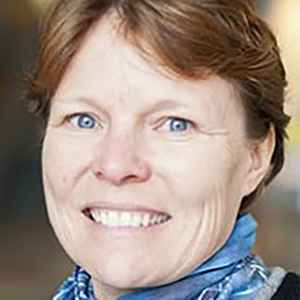 Alice Pulvermacher
Alice Pulvermacher
USING VALUE RUBRICS TO ASSESS CRITICAL THINKING IN THE UW FLEXIBLE OPTION
Abstract
To better understand learning outcomes in a CBE program, faculty members from the University of Wisconsin-Milwaukee evaluated 39 students’ demonstrations of critical thinking in two assessments administered in parallel versions of one course: one offered through the non-term, direct assessment UW Flexible Option (15 students), and the other through a traditional online program (24 students). These faculty members scored each assessment using the critical thinking rubric from the Association of American Colleges & Universities (AAC&U) Valid Assessment of Learning in Undergraduate Education (VALUE) project, and found that students from the CBE version of the course received significantly higher (p=.0013) overall scores than students in the traditional online version. This study begins to address questions raised about students’ ability to demonstrate meta-cognitive skills in a direct-assessment CBE learning environment. This early research does not support that concern. Further research with an increased sample size is recommended to evaluate if these results can be supported.
Presenter Bio
Alice Pulvermacher is a Project Manager in the Office of Academic and Student Affairs. She has been with the University of Wisconsin System Administration since 2014. Alice’s responsibilities include management of system scale change initiatives as assigned by the Vice President. Prior to joining the University of Wisconsin System, Alice was a research project manager in the College of Engineering at UW-Madison from 2004 to 2014. In that leadership role, she was responsible for implementation and testing of technology systems designed to provide support and resources at both the individual and organizational levels. This work included a multi-state initiative with 200 organizations representing diverse sets of partners and stakeholders from the private and public sectors and led to an expanded role providing quality improvement coaching. Alice earned a B.S. in project management in a specialized field from Michigan State University and an M.S. in adult education from UW-Madison. She currently serves on the board of the Elvehjem Neighborhood Association and has previously served on the communications committee for the Academic Staff governance committee at UW-Madison.
Maria del C. Perez-Ramos
Financial Aid and Scholarships
[email protected]
PANEL DISCUSSION — FINANCIAL AID
Abstract
Presenter Bio
Maria Ramos has been in financial aid for the past 30 + years. Started in financial aid at the University of Illinois Medical Center in the Chicago area worked there for 6 years. Moved to Texas and worked as Director of Financial Aid at Richland College, part of the DCCCD for 8 years. Began working at University of Texas at Dallas for 12 years. Maria has been at Texas A&M University-Commerce for the past 8 years.
Dr. Penne Restad
Dr. Penne Restad
[email protected]
Abstract
TEXAS ONRAMPS US HISTORY
Explore Texas OnRamps dual enrollment HIS 315K and 315L courses with us to learn how high school students study significant themes in US history from 1492 through the 1980s. Through these courses, students uncover the range and depth of the American story, focusing on overarching themes such as “American Identities,” “Reform and Renewal,” and “Self and Society.” The dual-enrollment, college-level courses feature two key innovations: use of Team-Based Learning and an integrated learning management system. In this session, you will gain understanding of the student learning process begins with formative online individual and team quizzes based on Internet-available texts in each unit of instruction. Working with their permanently assigned teams, they proceed to analyze sets of primary documents and selected secondary sources using guiding IQs (Inquiry Questions) templates to shape discussions. Each element of the unit scaffolds the students’ approach to building content and thematic knowledge that is assessed using multiple modalities.
Presenter Bio
Dr. Penne Restad is a Distinguished Senior Lecturer at The University of Texas at Austin in the Department of History. She is the author of Christmas in America: A History, a Senior Provost Teaching Fellow, recipient of the Regent’s Teaching Award, and named an Alcade Ten. Dr. Restad’s scholarship explores the formation of American cultural identities and behaviors, the history of consumer culture, and the scholarship of teaching and learning in higher education.
Carlos Rivers
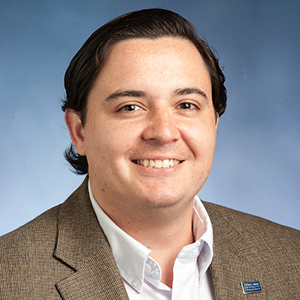 Carlos Rivers
Carlos Rivers
[email protected]
Abstracts:
CBE: A BUSINESS MODEL FOR CHANGING TIMES
The changing face of higher education is exerting increasing pressure on institutions to move to new educational models that fit the vastly different conditions of the 21st century. To date, little research has been undertaken on the financial underpinnings of newer CBE business models (Desrochers & Staisloff, 2016). This session will show a profit and loss (P&L) statement that captures the revenues, costs, and expenses incurred for the state of Texas first public, regionally accredited (SACSCOC) competency-based education degree program at Texas A&M University-Commerce. The analysis assesses the program from inception and reveals that the CBE program is self-sustaining within five years at 350 students per term or at 14,500 semester credit hours per academic year. In its current or sixth year (fall semester), CBE enrollment trends upward to 385 students, a new record for the program and current forecasts show that the program may generate a larger return on investment for the university by year end. This study supports the notion that institutions should expect their CBE program to breakeven by the 5th year of operation (Desrochers & Staisloff, 2016).
CBE DASHBOARD DEMONSTRATION
This presentation will demonstrate a Data Dashboard created for the state of Texas first public, regionally accredited (SACSCOC) competency-based baccalaureate degree. The Institute for Competency-Based Education, housed at A&M-Commerce, has tracked program data and built key performance indicators for the program since its inception, so that it may serve as the beginning of a common conceptual framework. Session also will cover student time and cost savings scenarios and post-graduation survey outcomes for competency-based education students at A&M-Commerce. Participants will engage in some investigation, looking for patterns and trends that grant glimpses of insight and assist in building value around the data. Coupling the data with narrative creates the opportunity for extended value by aiding in the creation of powerful stories with the potential to influence stakeholder buy-in and drive innovative change.
The Graduate Exit Survey (GES) serves an important role for Texas A&M University-Commerce to collect information from A&M-Commerce applicants for graduation. The first survey launched in Fall 2015 and has since received a high response rate (65% or above). The results have been widely shared with the colleges, departments, and service units for assessment, marketing, and continuous improvement purposes. Through the use of data, we are able to better understand our students’ needs as well as plan for their successes. By utilizing a graduate exit survey (GES), we analyze and reflect on students’ perceptions in of living and learning experiences in an effort to seek continuous improvement. Over the past four graduating terms, 2067 undergraduate (80% response rate) and 1994 graduate (78% response rate) students have completed the survey. In this presentation, a test of the instrument validity and reliability, analysis of students’ self- reported employment information, student evaluation of academic/service experiences, and self-reported marketable skills will be discussed.
Presenter Bio
Carlos Rivers serves as the Operations Research Analyst for the Institute for Competency-Based Education. He focuses primarily on historical data collection and analysis for Texas A&M University Commerce’s Affordable Baccalaureate Degree and establishing and tracking program specific metrics that can potentially serve as a framework for universities planning to launch similar competency-based programs. In this position, Mr. Rivers has provided baseline data to the Texas Higher Education Coordinating Board (THECB) that has served as a starting point for grant applications to fund additional sites. His publications on competency-based education and data analytics have appeared in such venues as The Journal of Competency-Based Education, EDUCAUSE Review, WCET Frontiers and The Evolllution.
Jason Rosenblum, Ph.D.
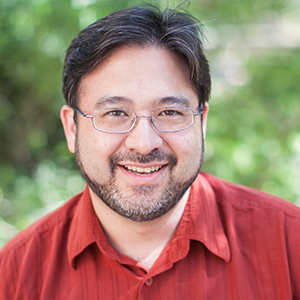 Jason Rosenblum
Jason Rosenblum[email protected]
Abstract
GAME-BASED LEARNING & CBE-BEYOND THE BADGE
What does it mean for a course to be innovative in ways that give students a competency-based educational experience (CBE), while engaging in game-based learning (GBL)? CBE offers the opportunity reflect progress through authentic assessment, using (at times) alternatives to credit-based course structures. Game-based learning (GBL) course strategies, by contrast, offer students non-traditional formats which maximize student participation in ways that boost student engagement and provide deeply immersive and ludic experiences. This session will explore the potential connections between CBE and GBL course design strategies to create engaging and authentic student learning experiences for individual courses, and potentially within course sequences. Participants will have the opportunity to explore examples of GBL and CBE applications and brainstorm ways these strategies can be applied to help students to demonstrate critical university and career competencies.
Presenters Bio
Jason Rosenblum is an Adjunct Assistant Professor in the School of Interdisciplinary Studies & Education at New York Institute of Technology (NYIT). Prior to this appointment, he was Associate Director in the Center for Teaching and Learning at NYIT. He has also served as an Assistant Professor of Digital Media and Visual Studies at St. Edward’s University, and he has an additional 20 years of experience in educational technology. Dr. Rosenblum holds a Ph.D. in Curriculum and Instruction, specializing in Learning Technologies from the University of Texas at Austin. He was recognized for his innovation in teaching by St. Edward’s University in 2012, and received a ‘Highly Commended’ distinction by Emerald and the Higher Education Teaching & Learning Association (HETL) for his dissertation research in 2014. His doctoral studies included a focus on game-based learning (GBL), game sound, music psychology and innovative applications of learning technologies. He has a passion for teaching and learning approaches that foster real-world engagement, and an authentic, outcomes-based approach to assessment. He is a strong advocate for applied, engaged learning that is experiential, and that empowers students to tackle projects with social good outcomes.
Shinobu Rowe
Director of Special Projects
[email protected]
Abstract
Take a look into TSTC’s motivation behind awarding digital badges. We’ll cover our processes for curriculum granularization, identification of relevant badges, creation, and design with Marketing and Faculty, awardation and reporting, and future steps. In this session, participants will be encouraged to discuss potential value and challenges of badging.
Presenter Bio
Nancy Salzman
Nancy Salzman
Abstract
LEVERAGING COMPETENCY-BASED DESIGN & TECHNOLOGY FOR WORKFORCE DEVELOPMENT & CONTINUING EDUCATION
Brandman University and Sagence Learning will share their experience designing and implementing a competency-based professional learning portfolio for K-12 professionals. The competency-based attributes of the Sagence platform allow courses to embody best practices in adult education and workforce development. The presentation will include a demo of a representative course, highlighting how the design promotes student engagement, meaningful interaction between instructors and students, and opportunities for students to demonstrate application of learning. There will also be a discussion on how insights into student progress and performance can help instructors, coaches, and other student support improve engagement. Participants will have the opportunity to share their own experiences in building non-credit programs, identify questions and processes relevant to competency-based models and the use of technology, and engage in design challenges in small groups in order to build an idea bank for future use; they will approach design challenges from their own institution’s perspective, brainstorming solutions and viable alternatives in design and delivery.
Presenter Bio
Nancy Salzman is the Dean of the School of Extended Education at Brandman University where she leads a team responsible for development and delivery of programs aligned with the university’s strategic initiatives; developing and nurturing partnerships with the community associations, businesses, and military installations throughout the university’s system of twenty-seven campuses throughout California and Washington; and develops other opportunities for revenue and enrollment generation. Nancy chairs the Brandman University competency based programming committee, leading a cross functional team that initiates and provides the functional support required to develop and deliver competency based programs across multiple Brandman schools. Prior to joining the Brandman University team, Nancy practiced law as a member of two large California law firms, built a solo practice, was the education director for a nonprofit lobbying organization, and taught law and business courses at various educational institutions. Nancy received her undergraduate degree from Tufts University, her law degree from Loyola Marymount, and a teaching credential from California State University, Long Beach.
Mallory Schares
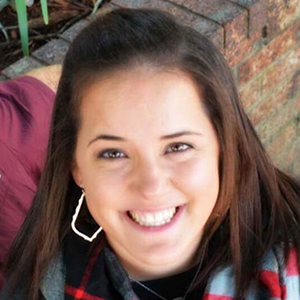 Mallory Schares
Mallory Schares
Abstract
INITIATING, IMPLEMENTING, AND INTEGRATING CONTINUOUS COMMUNICATION TO ENSURE STUDENT SUCCESS
(BIRDS OF A FEATHER(BOF))
There are many factors that play into student success: self-efficacy, organization, time management, involvement, well-being, and communication. Constant communication with the students enrolled in an online course is essential in order to ensure that the students’ needs are met and that the success factors are applicable. Instructors and coaches who communicate frequently and effectively with the students are able to personalize student support giving them the necessary direction to complete a competency-based, accelerated program. We will discuss ways to initiate, implement, and integrate continuous communication with the students so that their needs are met, and the factors that play into their success are in place.
Presenter Bio
Mallory Schares is a graduate of Stephen F. Austin State University with a Bachelor’s of Science in Interdisciplinary Studies. Mallory is a Success Coach for the Fast Start IV Grant at North Central Texas College. Mallory’s duties consist of recruiting, enrolling, tracking persistence and, advising.
Craig Schieber
 Craig Schieber
Craig Schieber
[email protected]
ARE YOU CBE READY? STRATEGIES FOR NAVIGATING THE CBE REVOLUTION
Abstract
The process of moving to competency-based education (CBE) is part of a larger paradigm shift in education. This revolutionary shift is moving education systems to deliver a more personalized, student-centered experience. CBE allows students to advance toward a completion goal based on their mastery of a skill or competency at their own pace. Establishing a CBE program can seem like a daunting task, but, luckily, this presentation contains some help! This session covers ideas and inspiration for any institution looking to start a CBE program, based on experiences with developing a CBE framework at Texas A&M University-Commerce. The session will begin with a short presentation of the context of this societal shift in education. Moving quickly from the “30,000 foot view” you will be brought into a clear focus on the issues shared by other institutions and issues particular to your own program.
Presenter Bio
Over the past 40 years, Craig Schieber has built a reputation as an innovator and leader of change in education. His work has focused on building student agency, project-based learning, inquiry learning, and personalizing the educational experience. Current efforts focus on the development of competency-based education and the many aspects of teaching that are encompassed in this historical shift in education pedagogy. Craig holds a doctoral degree from Seattle Pacific University where he studied How Technology is Influencing Education. His masters degree is from University of Washington and bachelors from Ohio State University. Craig has been recognized with: The White House Presidential Teacher’s Award, Who’s Who in American Schools, and The Golden Acorn Award. Craig serves as associate faculty at City University of Seattle.
Lynne Seal
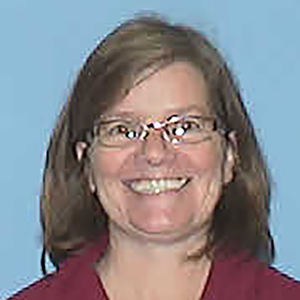 Lynne Seal
Lynne Seal
[email protected]
Abstract
DIPPING A TOE IN CBE WATERS
Intrigued by the goals of competency-based education, the Computer Information Systems (CIS) program at Amarillo College decided to evaluate CBE principles and mechanisms in one of our foundational courses. These are the lessons learned.
Presenter Bio
Lynne Seal, MBA, is the program coordinator/instructor for the Office Administration program and an instructor for the Computer Information Systems program at Amarillo College.
Judith Sebesta
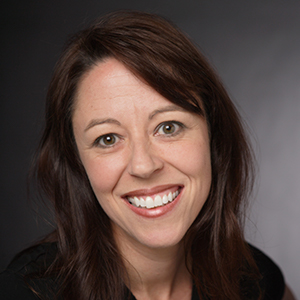 Judith Sebesta
Judith Sebesta
[email protected]
Abstract
THE 1310 INTRODUCTION TO THEATRE COURSE DEMO
In this session, Sebesta will demonstrate an online, competency-based, general education course, Introduction to Theatre, which is part of the curriculum of the BAAS in Organizational Leadership at Texas A&M University-Commerce. She will show how students demonstrate mastery of the five competencies through various discussions, assignments, and a series of ten total pretests and post tests. Attendees will get a glimpse into the inner workings of a liberal arts CBE course, including the rewards and challenges of teaching such a class, as well as future plans for the course, which include transitioning from commercial, proprietary learning materials to open educational resources.
Presenter Bio
Judith Sebesta currently serves as Project Director for Open Educational Resources for the Texas Higher Education Coordinating Board (THECB) and is an instructor in the competency-based online BAAS in Organizational Leadership at Texas A&M University-Commerce. Prior positions include founding Executive Director of the Institute for Competency-Based Education and Director of Innovation for the THECB. Before entering the broader landscape of higher education innovation policy and practice, she was a professor of theatre at such institutions as the University of Missouri and the University of Arizona. Sebesta earned a Ph.D. from The University of Texas at Austin, an M.S. from the Florida State University, and a B.A. from Austin College.
Christian Servin
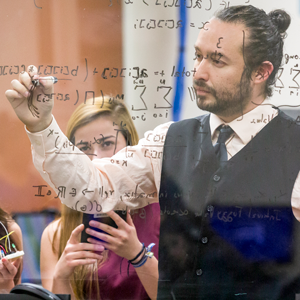
Christian Servin
El Paso Community College
[email protected]
Abstracts
TOWARDS BUILDING A CBE FUNDAMENTALS OF SCRIPTING COURSE: A PROJECT-BASED COURSE FOR CYBERSECURITY SCRIPTING
Due to the nature of this course and the high demand on the industry these days, it is intended to transform the existing course into a CBE course that will fit:
(1) the competencies that regional workforce suggests, and
(2) the NSA CAE/2Y Knowledge Areas, suggested by the NSA.
The course is designed on a project-based learning format, which objective is to provide a pedagogical environment that allows students to explore principles of scripting programming through a customized project. The sessions will present the structure of the course modules, the mapping between the competencies and the corresponding learning outcomes from established educational frameworks to the projects. A preliminary result obtained from student performance and future venues of incorporating the model into other cybersecurity courses in the associate degree offered at a variety of community colleges. Finally, a brief discussion about how CBE active components can be also translated into cybersecurity competencies.
ACM CCECC CYBERSECURITY-INFUSED COMPUTER SCIENCE CURRICULAR GUIDANCE
The ACM Committee for Computing Education in Community Colleges (CCECC) recently published the process to create curriculum guidance for two-year Cybersecurity programs. This presentation will provide a description of the curricular guidance that has been released recently. In addition, the presentation with serve as a platform for gathering initial input from the community on the topics that should be included in two-year Cybersecurity programs, the relationship between two-year and four-year Cybersecurity programs, the delineation between Cybersecurity and other computing programs, and the recent release of Cybersecurity Curricula (CSEC). If your institution has already implemented a Cybersecurity program or plans to do so in the future, this presentation will provide the audience and an opportunity to contribute to curriculum guidelines that will help shape the future of Cybersecurity education.
AN INNOVATIVE MODEL OF PEER-LED TEAM LEARNING IN COMMUNITY COLLEGES
In this presentation, we will discuss the selection of the peer leaders and the respective findings that we identified in both, the peer-leaders and the students that were mentored by the peer-leaders. In addition, we describe the components of the PLTL model that has been adopted successfully in a community college environment. Finally, we describe curriculum significance through the model, since the PLTL sessions are designed by the peer-leaders based on the ACM CCECC guidelines learning outcomes from specific knowledge areas and units from the guideline.
Presenter Bio
Dr. Christian Servin is a member of several professional associations in computing including the Association for Computing Machinery (ACM) and the Institute of Electrical and Electronics Engineers (IEEE). Currently, he is the vice-chair of the IEEE El Paso Region, and he serves as a member for the Committee for Computing Education in Community Colleges (CCECC), where he develops and updates curricular guidelines in computing for 2-year colleges (such as technical and community colleges). Also, he is the current treasurer for the North American Fuzzy Information Processing Society, scientific associations that publish the novelist research in the area of fuzzy logic and uncertainty computation techniques. Dr. Servin currently teaches computer science courses at El Paso Community College and his primary research areas are computer science education and the study of uncertainty through interval computations and fuzzy logic. Analogously, Dr. Servin research studies in computer science education span from best practices and educational models to policy development in community colleges.
Carrie Simpson
 Carrie Simpson
Carrie SimpsonAustin Community College
[email protected]
Abstract
Differentiation benefits the brain at any age, for any student. Robert Sternberg presents us with the Triarchic Theory of Intelligence, positing we have three thinker types, and when invited to work in our dominant domain, we are more likely to retain information. When we work in all three, we build balanced intelligence. This session looks at these thinker types and offers an easy way to utilize differentiation and Sternberg in any post-secondary classroom: CAP Activities.
Presenter Bio
Dr. Simpson has spent the last ten years becoming an expert in differentiation. She has six years experience offering courses to post-secondary students, having instructed Composition and Rhetoric and Humanities at the community college level (Richland and Austin Community College). She also teaches in the Teacher Development Center at UTDallas, offering courses (undergraduate and graduate) on the topic of differentiation to meet the needs of diverse populations. Carrie has written two books on the subject of differentiation (Design DI: CAP Activities for Process Differentiation; Design DI: How to Differentiate for Overexcitabilities). She speaks across the country on differentiation, brain-based instruction, gifted education, curriculum development and so on. She is currently putting her research to practice with her students at UTD and at ACC.
Linda Smarzik
Dean, Computer Science and Information Technology
Austin Community College District
[email protected]
LOOKING FORWARD TO CBE & INNOVATION IN HIGHER EDUCATION
Abstract
Presenters Bio
Linda Smarzik has been a community college leader in the position of dean since 2004. She has overseen over 6,000 students and 300 faculty and staff with the departments of Computer Science, Computer Information Technology, Game Development, Animation and Motion Graphics, Architectural Engineering & Computer Aided Design, Visual Communication, Surveying, and Electronics and Advanced Technologies. Linda is a passionate innovator with a gift for building strategic frameworks that motivate teams to serve, attract, retain, and graduate a diverse student population. In 2015, Linda led a Bill and Melinda Gates Foundation grant to launch Women in IT, a program designed to expand equitable representation of women in the field of Information Technology. Degree output for females doubled. Linda’s passion for addressing the needs of non-traditional students led her to direct and guide a 2.1 million dollar Department of Labor TAACCCT grant. This bold initiative built, developed, and implemented a competency-based education, distance-learning program in Computer Information Technology. The Accelerated Programmer Training program allowed students the flexibility to progress with their learning regardless of time, place, or pace. This program has tripled the output of degrees and certificates. As a result, Linda and her team were recognized with the prestigious, statewide STAR award and a national 2018 Innovation of the Year award through the League for Innovation in the Community College. Linda has also led an inter-disciplinary team of department chairs to plan a multi-million dollar, 80,000 square foot facility to house ACC’s Digital and Creative Media Center. In the heart of the center will be housed The Innovation Lab that will encompass a School to Business Center and accompanies three entrepreneurial incubators (to open in 2020). In 2017, Linda was recognized as ACC’s Administrator of the Year and was also awarded the John and Suanne Roueche Excellence award. Linda is the author of The Mind of Thuse summarizing her many years of teaching and research that have delved into the process of creativity as it applies to neuroscience.
Amy Sorter
 Amy Sorter
Amy SorterMANAGING STUDENT SUCCESS IN AN EVER-EVOLVING DIGITAL WORLD–STRATEGIES AND SOLUTIONS FOR COMPETENCY-BASED LEARNING PROGRAMS
Cameron Smither

Cameron Smither
[email protected]
Abstract
WHAT DOES PROGRESSION LOOK LIKE? VISUALIZING STUDENT EXPERIENCES USING REAL CBE PROGRAM DATA
Our measures of students’ experiences have lost much of their relevance amidst shifting program models and changing student populations. Although the field has common metrics in IPEDS like fall to fall retention, they were designed around traditional institutions serving traditional students. Postsecondary competency-based programs and other innovative models demand new ways of understanding students’ enrollment and progression so that program leaders can identify common barriers for students and inform continuous improvement. In our presentation, we will demonstrate exciting new measures of student success that begin to meet the needs of program leaders in search of more detailed and illustrative student progression metrics. Participants will be engaged in answering the following questions:
- What measures of student progression currently exist?
- Why are current measures a poor fit?
- What questions should we be asking about student progression?
- What are some examples of new and better progression metrics (modeled using real data from seven institutions with established CBE programs)?
- How might participants use these new metrics today?
Presenter Bio
Cameron Smither is a Researcher at the American Institutes for Research (AIR). He leads data analysis efforts on AIR’s ongoing student outcomes assessment of postsecondary competency-based education programs. In addition to studying postsecondary models of CBE, his areas of focus include understanding & communicating the “return on investment” from postsecondary credentials; designing improved measures of institutional performance, cost to students, & student progression to drive continuous improvement; and designing & assessing targeted student success initiatives.
Dr. Dan Su
 Dr. Dan Su
Dr. Dan Su
Abstract
This panel discussion will highlight reporting and accreditation considerations when implementing innovative approaches to course and program offerings at four and two-year institutions of higher education such as non-standard terms or competency-based education. It is imperative to consider not only the implications, but the connections that may occur between regional accreditation, federal, state, and local levels. Specific to Texas, there are critical connections between innovative approaches to course and program offerings and the Completion Goal of the Texas Higher Education Strategic Plan 60×30. Reporting considerations critical to these types of innovative approaches include: state reporting for funding, tracking of census dates, drops for non-payment and payment plans, and tracking of veteran and military service members benefits. Accreditation considerations include identifying appropriate steps and notification actions to regional accreditation agencies based on the nature of the innovative approaches.
Presenter Bio
Dr. Dan Su holds a doctoral degree in Educational Psychology obtained from Texas Tech University. Dr. Su has worked in various positions in institutional assessment and /or research offices with a few private and public college and universities in Texas. Serving as director of institutional research and adjunct professor in teaching statistics and research methods, Dr. Su is specialized in assessment, working with large scaled database, developing psychometric measurement instrument, quantitative research methodology, analysis, and state/federal reporting.
Rinki Suryavanshi
 Rinki Suryavanshi
Rinki SuryavanshiTexas A&M Corpus Christi
[email protected]
DETERMINING AND REPORTING STUDENTS’ PROGRESS AT COURSE AND PROGRAM LEVELS
Abstracts
The team uses Blackboard’s Goal-Performance Alignment and Analytics for Bb Learn (A4L) tools to demonstrate how the two tools help us align competencies and assessments and make tracking student mastery of competencies and standards easy. The tools automate record keeping as students place-out and/or complete a course, and they track students’ progress through a program. The Goal-Performance alignment tool helps us generate reports of goals coverage information for a single course. Data includes both covered and gap values, information showing how a Blackboard course performs against a selected set of goals, and graphs of how each student in a course performs against a selected set of goals. A4L facilitates analysis of student achievement of competencies through courses across the program. The reports provide overviews of success rates (percentage of students who graduate), retention rates (percentage of students enrolled after a specified term), completion ratios (the number of credits completed divided by the number of credits attempted), comparisons between success of transfer vs. four-year students, and CBE students’ performances compared to traditional students’ performances.
Presenter Bio
Dr. Rinki Suryavanshi is an Instructional Designer in the Office of Distance Education and Learning Technologies at TAMU-CC. Her interest is in designs for learning and human performance technologies.
Jeremy Tanner
Tricia Thomas-Anderson
 Tricia Thomas-Anderson
Tricia Thomas-Anderson
Abstracts
BLENDED PATHWAYS: DEVELOPING PROGRAMS THAT BROADEN EMPLOYEES’ CE CREDENTIALS
Blended Pathways: Developing Programs that Broaden Employees’ CE Credentials into Degrees. The session will introduce attendees to engaging strategies used to develop replicable accelerated programs that align with non-credit industry-recognized certifications. Third-party industry certifications, such as MOUS, ASE, and NATE, are commonly offered as industry training for employers. Presenters will use group activities, online resources, and handouts to share how Eastfield College is disseminating Blended Pathway models that expand non-credit certifications into credit-bearing programs that increase institutions’ capacity in industry partnerships, enrollment, and student success. Participants will gain guidance and information necessary to discuss development and implementation of similar pathways at their institutions.
Evaluating Employee’s Non-credit Credentials into Certificates and Degrees
The session will engage participants in a panel discussion regarding the process for evaluating and awarding credit for students’ prior learning experiences and industry credentials. Eastfield College and the American Council on Education (ACE) will share strategies used to develop replicable accelerated programs that align with non-credit industry-recognized certifications. The panel will provide attendees with information regarding credit for prior learning initiatives, best practices institutions with successful industry crosswalk models, faculty experiences as an evaluator in training and during implementation, and institutional experiences in developing practices and policies for making recommendations, transcripting credit, etc. Supported by funding through the Texas Higher Education Coordinating Board, Eastfield College, in partnership with Houston Community College and the American Council on Education, are using online technology, face-to-face professional development, and advisory teams to train faculty in the evaluation of and industry certifications to develop replicable accelerated pathways to a stackable credit-bearing credential.
Presenter Bio
Tricia Thomas-Anderson is the Dean of Resource Development at Eastfield College of the Dallas County Community College District. Tricia has over 17 years of higher education experience and administration in the divisions of Student Services and Development as well as serving students through academic instruction in history. She has over 14 years of grants management and development experience which includes serving as the grant manager and member of the Project Administration Team for the Prior Learning Assessment (PLA) Portal Project in partnership with the Texas Higher Education Coordinating Board, North Texas Community College Consortium and Texas A & M University at Commerce. In addition to multiple statewide conference presentations in support of the PLA Project, Dr. Thomas-Anderson has shared credit for prior learning initiatives with several other colleges and universities in partnership with the American Council on Education (ACE) and the American Association of Collegiate Registrars and Admissions Officers (AACRAO).
Diane Tompkins
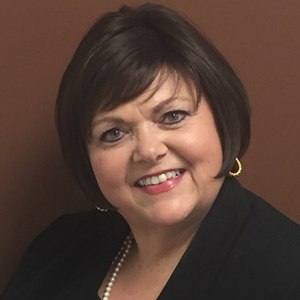 Diane Tompkins
Diane Tompkins
[email protected]
Abstracts
BLENDED PATHWAYS: DEVELOPING PROGRAMS THAT BROADEN EMPLOYEES’ CE CREDEN
Blended Pathways: Developing Programs that Broaden Employees’ CE Credentials into Degrees. The session will introduce attendees to engaging strategies used to develop replicable accelerated programs that align with non-credit industry-recognized certifications. Third-party industry certifications, such as MOUS, ASE, and NATE, are commonly offered as industry training for employers. Presenters will use group activities, online resources, and handouts to share how Eastfield College is disseminating Blended Pathway models that expand non-credit certifications into credit-bearing programs that increase institutions’ capacity in industry partnerships, enrollment, and student success. Participants will gain guidance and information necessary to discuss development and implementation of similar pathways at their institutions.
EVALUATING EMPLOYEES’ NON-CREDIT CREDENTIALS INTO CERTIFICATES AND DEGREES
The session will engage participants in a panel discussion regarding the process for evaluating and awarding credit for students’ prior learning experiences and industry credentials. Eastfield College and the American Council on Education (ACE) will share strategies used to develop replicable accelerated programs that align with non-credit industry-recognized certifications. The panel will provide attendees with information regarding credit for prior learning initiatives, best practices institutions with successful industry crosswalk models, faculty experiences as an evaluator in training and during implementation, and institutional experiences in developing practices and policies for making recommendations, transcripting credit, etc. Supported by funding through the Texas Higher Education Coordinating Board, Eastfield College, in partnership with Houston Community College and the American Council on Education, are using online technology, face-to-face professional development, and advisory teams to train faculty in the evaluation of and industry certifications to develop replicable accelerated pathways to a stackable credit-bearing credential.
Presenter Bio
Diane is the Coordinator of Grant Management Services in the Office of Resource Development at Eastfield College, in the Dallas County Community College District. She served as the Coordinator of Training and Development for the PLA Portal Project during the 2015-2016 Carl Perkins State Leadership Grant award at Eastfield College. Diane has over twenty-five years’ experience in Training and Development with adults in the workplace. She holds a Master’s Degree in Human Relations and Business, as well as a Master’s level specialty certificate in Adult Training and Development.
Dr. Meng-Hung Wu
Title
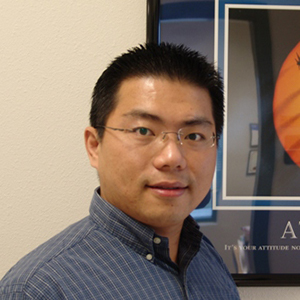 Dr. Meng-Hung Wu
Dr. Meng-Hung Wu
[email protected]
Abstract
South Texas College and Austin Community College developed a fully online, CBE program for the Bachelors of Applied Technology in Computer and Information Technologies (BAT-CIT). The Advanced Networking course in this demo is part of the CBE program, and it prepares individuals for a career as a Network Engineer in the Information Technology (IT) support industry. This course is composed of four competencies: Networking Fundamentals, LAN Switching, Routing Protocols, and Network Infrastructure Services. In addition, we will also demonstrate the Advanced Computer Programming course, which teaches students how to develop applications with graphical user interfaces (GUI) and database connectivity. Through the demonstration of these two courses, we will explore course design, competencies, course policies, assessments, learning outcomes, online faculty-student interaction, and rubrics.
Presenter Bio
Dr. Meng-Hung Wu has a Doctorate in Computer Sciences. He has both online and traditional classroom experience at the undergraduate and graduate level. He has been teaching in the college and university settings for the past 11 years. He currently serves at South Texas College, and he is very passionate about online and competency-based learning.
Jenny Yu
 Jenny Yu
Jenny Yu
[email protected]
Abstract
LEVERAGING COMPETENCY-BASED DESIGN & TECHNOLOGY FOR WORKFORCE DEVELOPMENT & CONTINUING EDUCATION
Brandman University and Sagence Learning will share their experience designing and implementing a competency-based professional learning portfolio for K-12 professionals. The competency-based attributes of the Sagence platform allow courses to embody best practices in adult education and workforce development. The presentation will include a demo of a representative course, highlighting how the design promotes student engagement, meaningful interaction between instructors and students, and opportunities for students to demonstrate application of learning. There will also be a discussion on how insights into student progress and performance can help instructors, coaches, and other student support improve engagement. Participants will have the opportunity to share their own experiences in building non-credit programs, identify questions and processes relevant to competency-based models and the use of technology, and engage in design challenges in small groups in order to build an idea bank for future use; they will approach design challenges from their own institution’s perspective, brainstorming solutions and viable alternatives in design and delivery.
Presenter Bio
As an instructional designer at CBEESC – Sagence Learning, Jenny Yu works alongside instructors and designers at institutions of higher education to design and develop competency-based programs, professional development programs, and other online flexible learning experiences utilizing the Sagence Learning platform. Jenny has had the opportunity to design and deliver educational experiences for disciplines that span education, healthcare, business, and the sciences, as well as K-12 mathematics and writing. She has also had the opportunity to engage with students of all ages in her work as a high school mathematics teacher, community college writing consultant and curriculum developer. Jenny strives to craft learning experiences that focus on the process of learning, including authentic assessments and activities that encourage exploration, critical thinking, and reflection. Jenny received her undergraduate degree in math education from New York University, a graduate degree in creative writing from Fairleigh Dickinson University, and an instructional design certificate from the University of Wisconsin-Stout.

